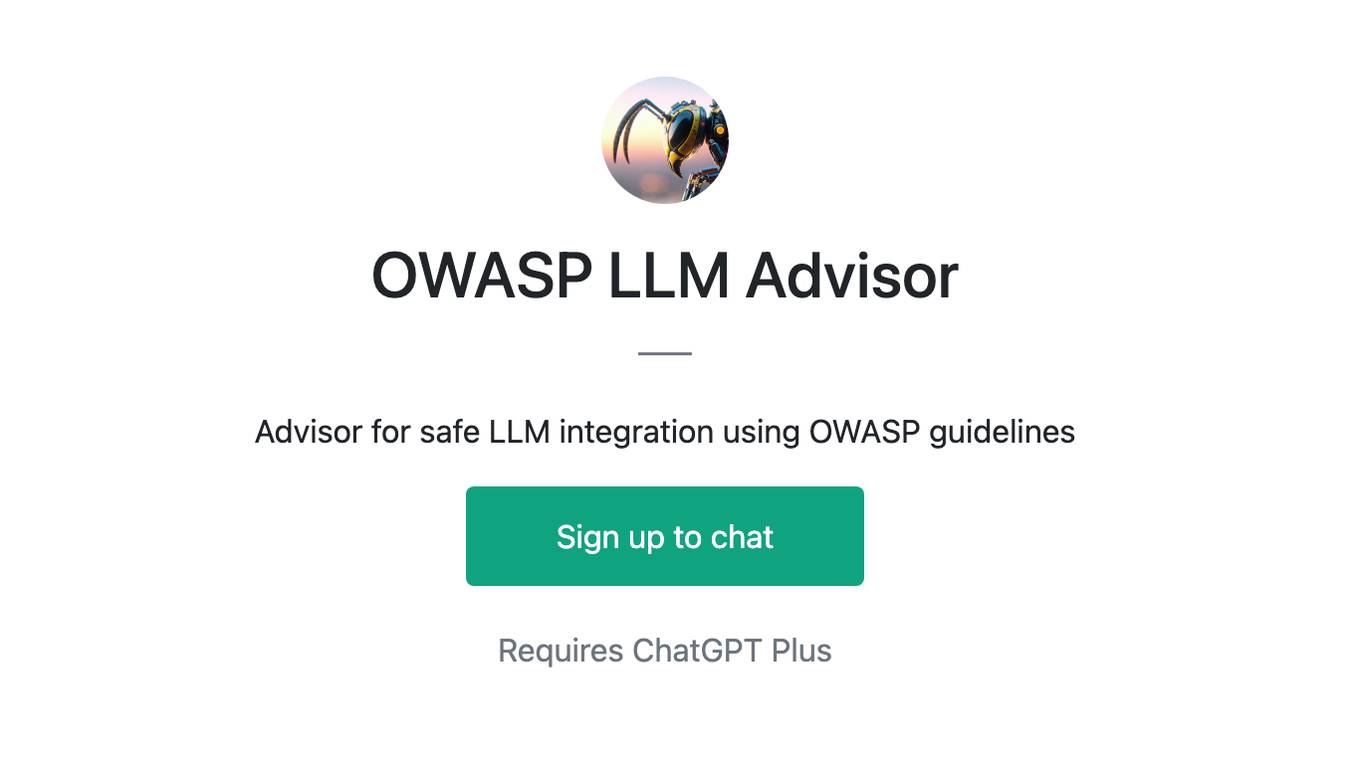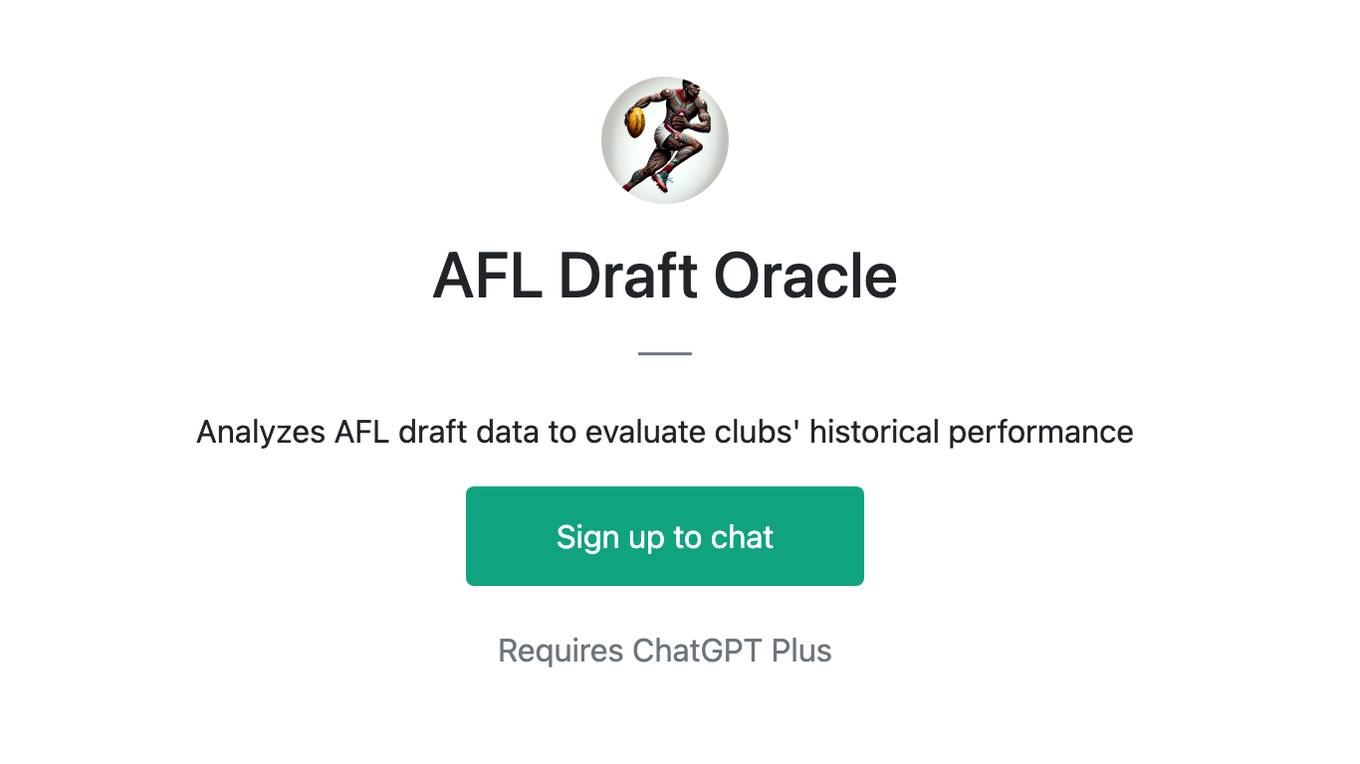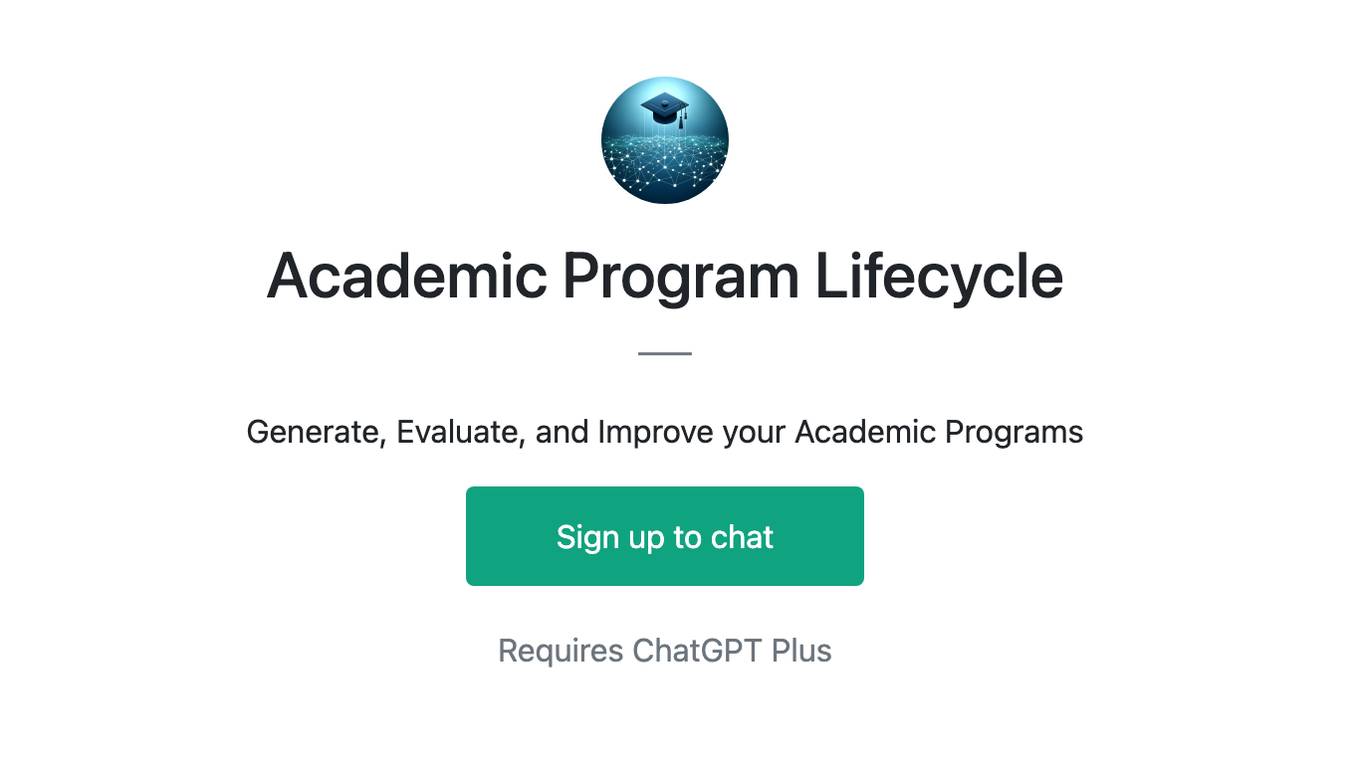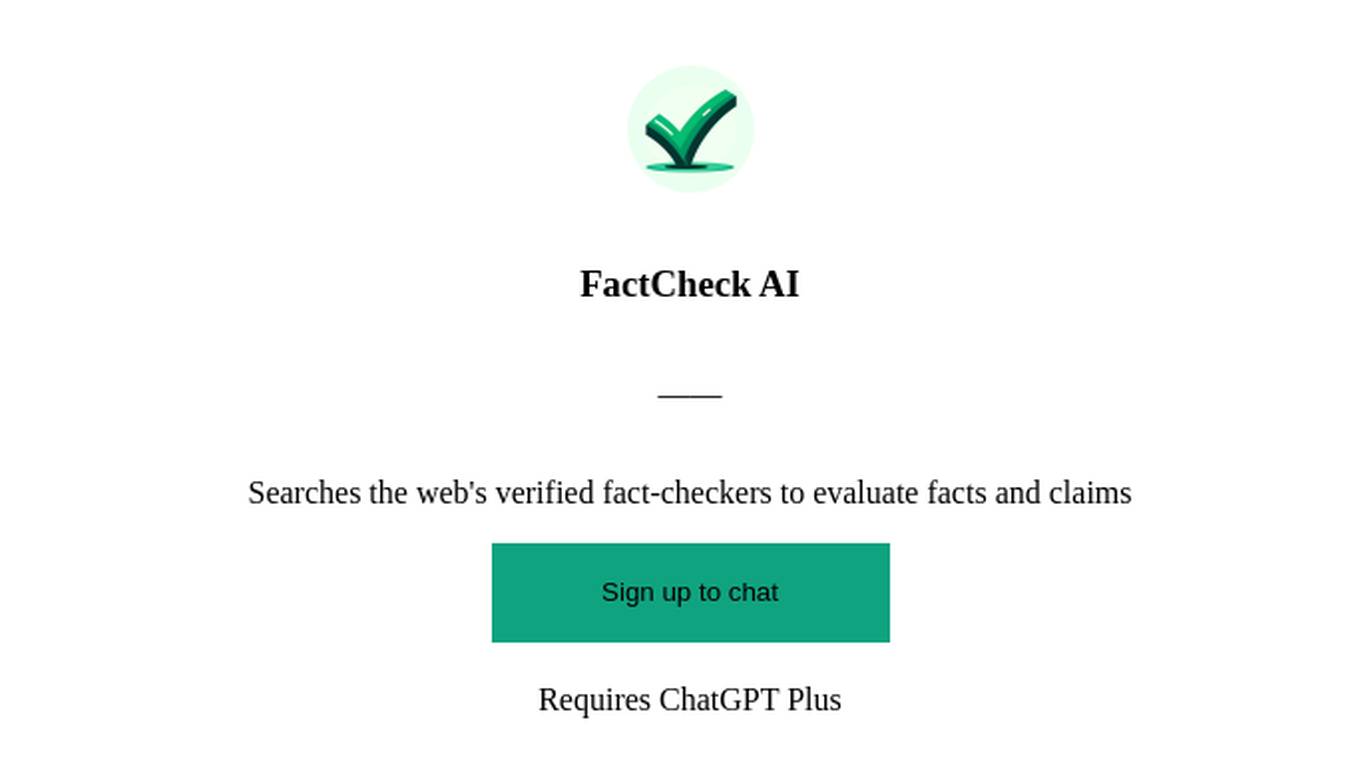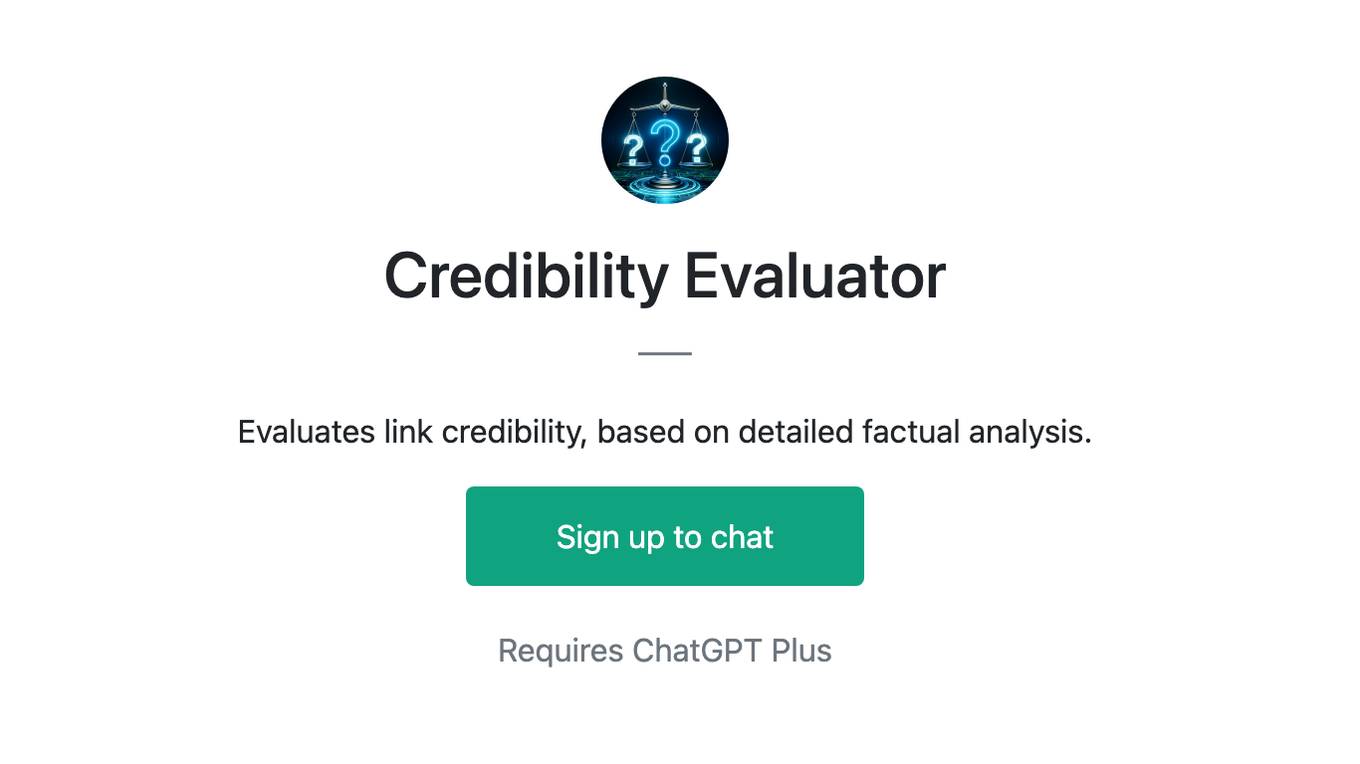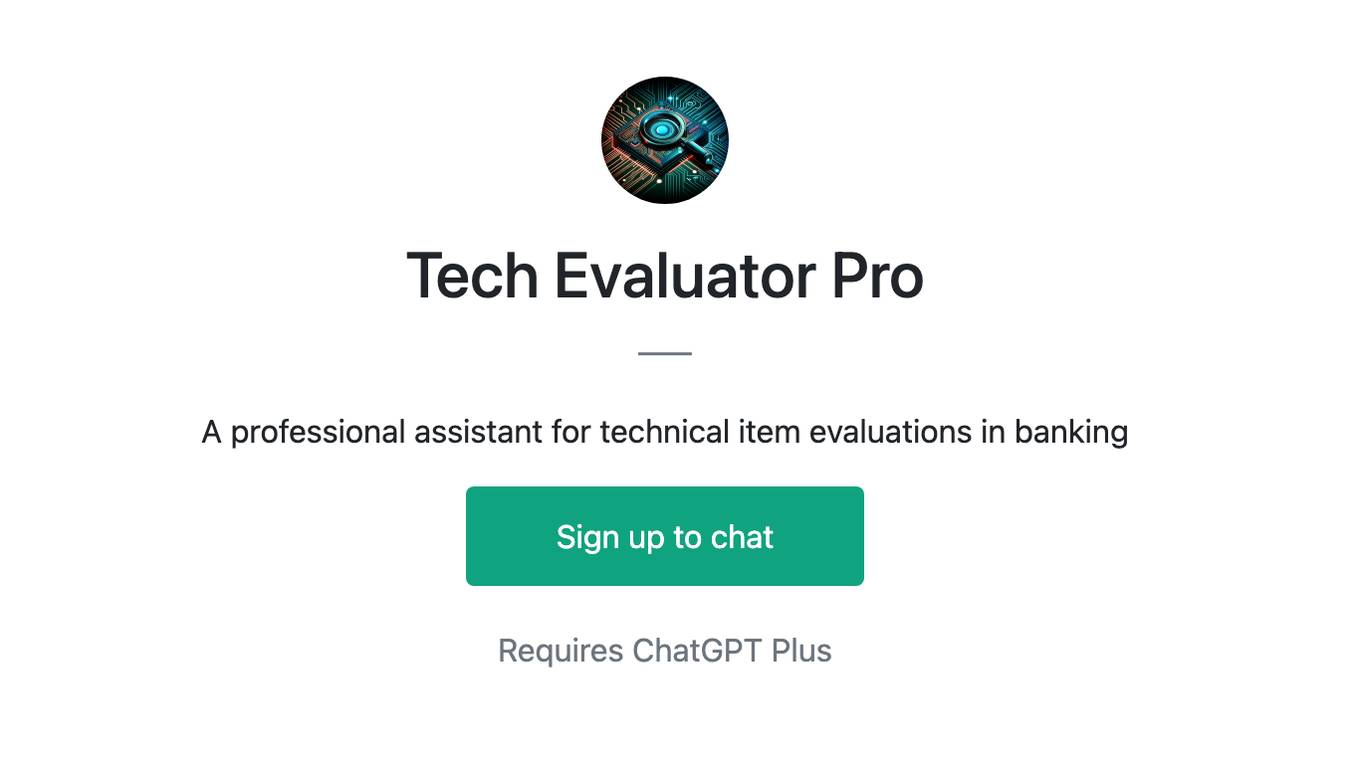Best AI tools for< Evaluate Llm Outputs >
20 - AI tool Sites
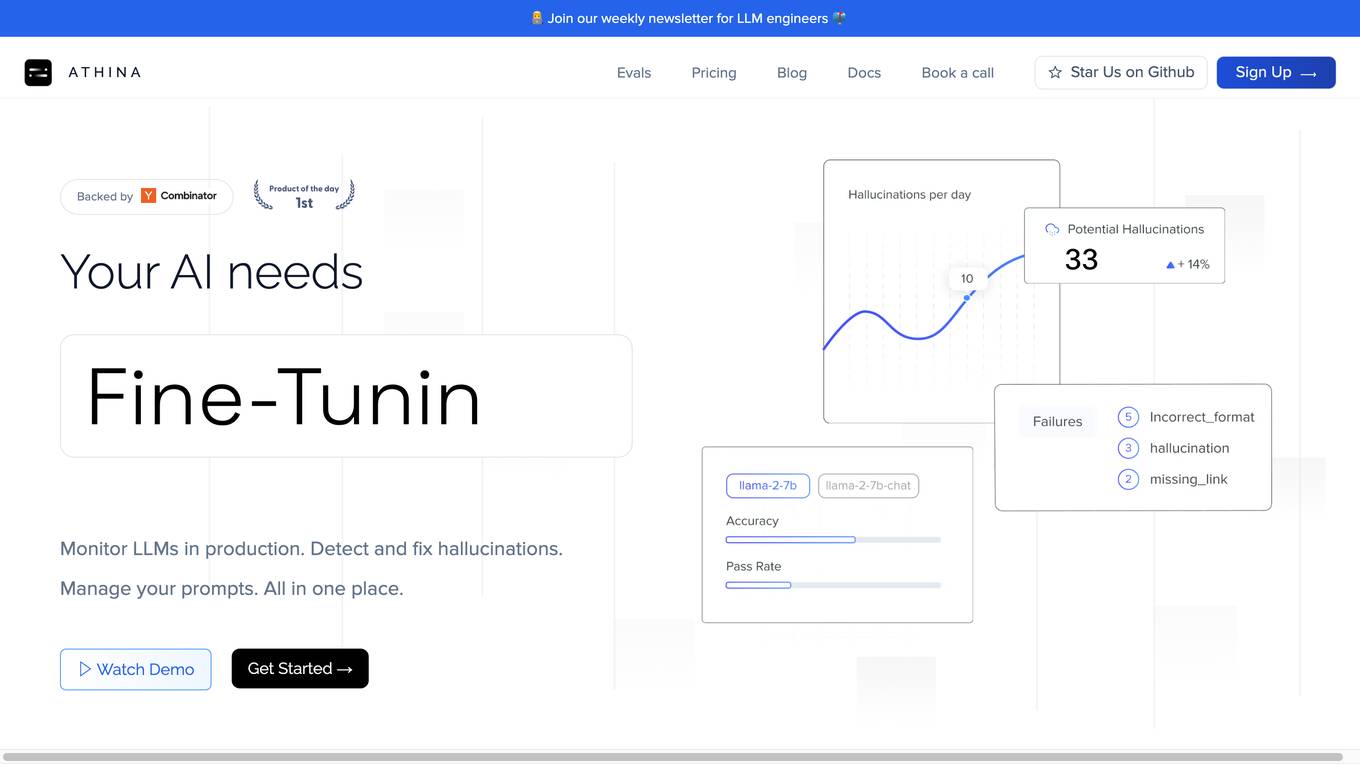
Athina AI
Athina AI is a comprehensive platform designed to monitor, debug, analyze, and improve the performance of Large Language Models (LLMs) in production environments. It provides a suite of tools and features that enable users to detect and fix hallucinations, evaluate output quality, analyze usage patterns, and optimize prompt management. Athina AI supports integration with various LLMs and offers a range of evaluation metrics, including context relevancy, harmfulness, summarization accuracy, and custom evaluations. It also provides a self-hosted solution for complete privacy and control, a GraphQL API for programmatic access to logs and evaluations, and support for multiple users and teams. Athina AI's mission is to empower organizations to harness the full potential of LLMs by ensuring their reliability, accuracy, and alignment with business objectives.

Confident AI
Confident AI is an open-source evaluation infrastructure for Large Language Models (LLMs). It provides a centralized platform to judge LLM applications, ensuring substantial benefits and addressing any weaknesses in LLM implementation. With Confident AI, companies can define ground truths to ensure their LLM is behaving as expected, evaluate performance against expected outputs to pinpoint areas for iterations, and utilize advanced diff tracking to guide towards the optimal LLM stack. The platform offers comprehensive analytics to identify areas of focus and features such as A/B testing, evaluation, output classification, reporting dashboard, dataset generation, and detailed monitoring to help productionize LLMs with confidence.
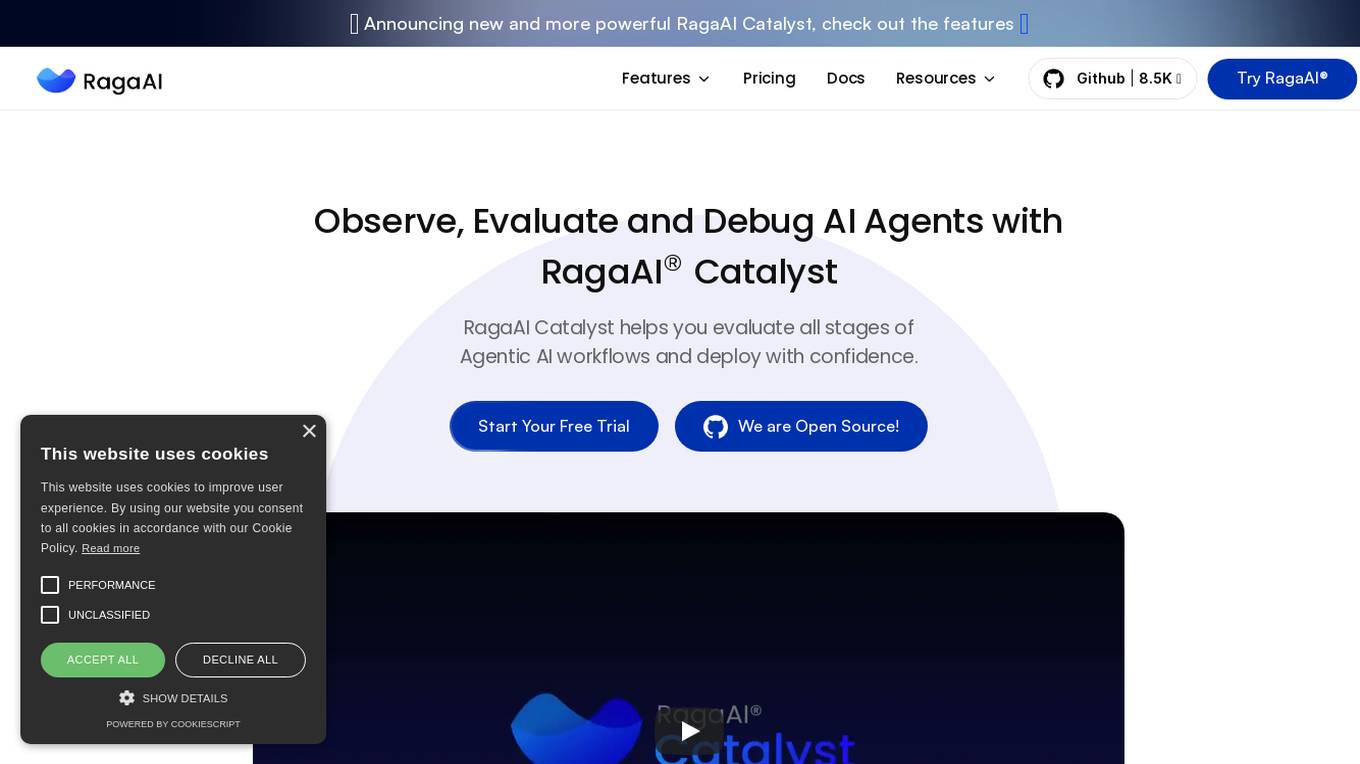
RagaAI Catalyst
RagaAI Catalyst is a sophisticated AI observability, monitoring, and evaluation platform designed to help users observe, evaluate, and debug AI agents at all stages of Agentic AI workflows. It offers features like visualizing trace data, instrumenting and monitoring tools and agents, enhancing AI performance, agentic testing, comprehensive trace logging, evaluation for each step of the agent, enterprise-grade experiment management, secure and reliable LLM outputs, finetuning with human feedback integration, defining custom evaluation logic, generating synthetic data, and optimizing LLM testing with speed and precision. The platform is trusted by AI leaders globally and provides a comprehensive suite of tools for AI developers and enterprises.
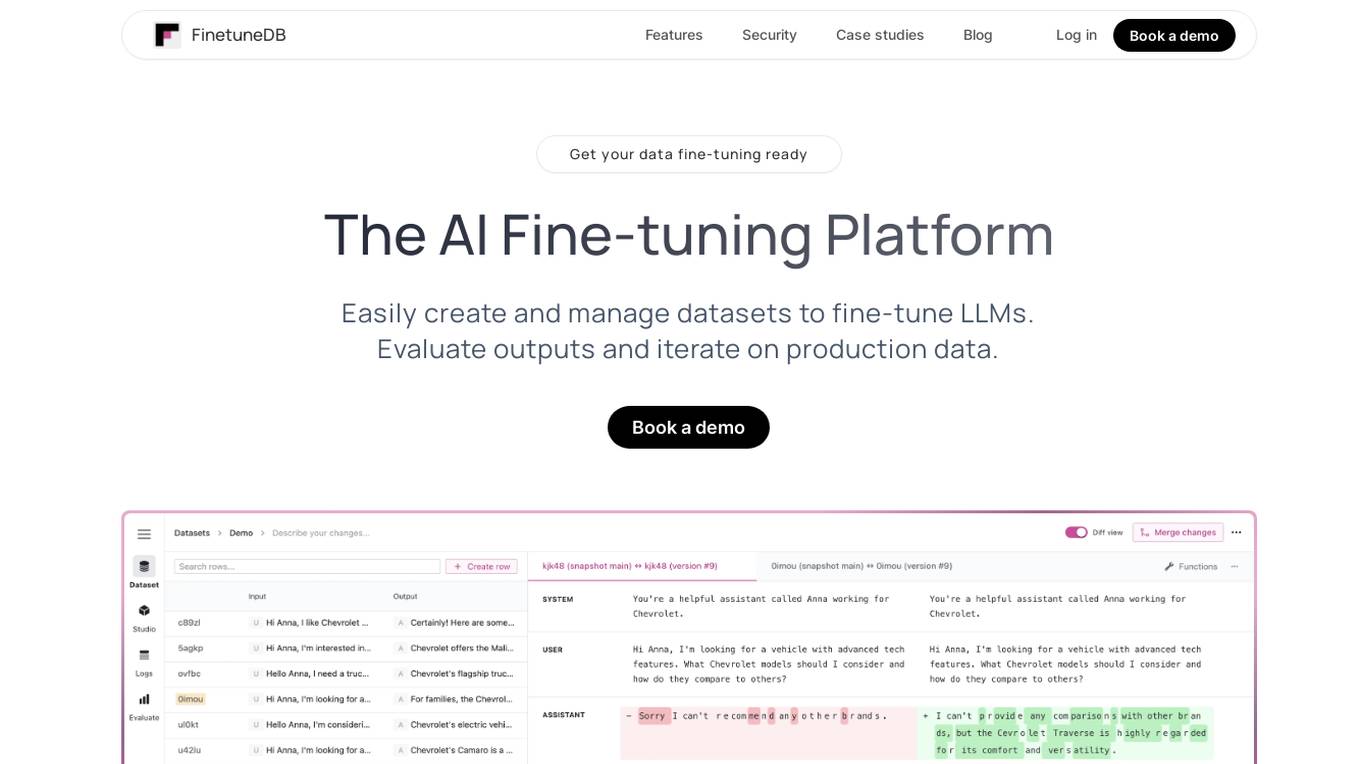
FinetuneDB
FinetuneDB is an AI fine-tuning platform that allows users to easily create and manage datasets to fine-tune LLMs, evaluate outputs, and iterate on production data. It integrates with open-source and proprietary foundation models, and provides a collaborative editor for building datasets. FinetuneDB also offers a variety of features for evaluating model performance, including human and AI feedback, automated evaluations, and model metrics tracking.
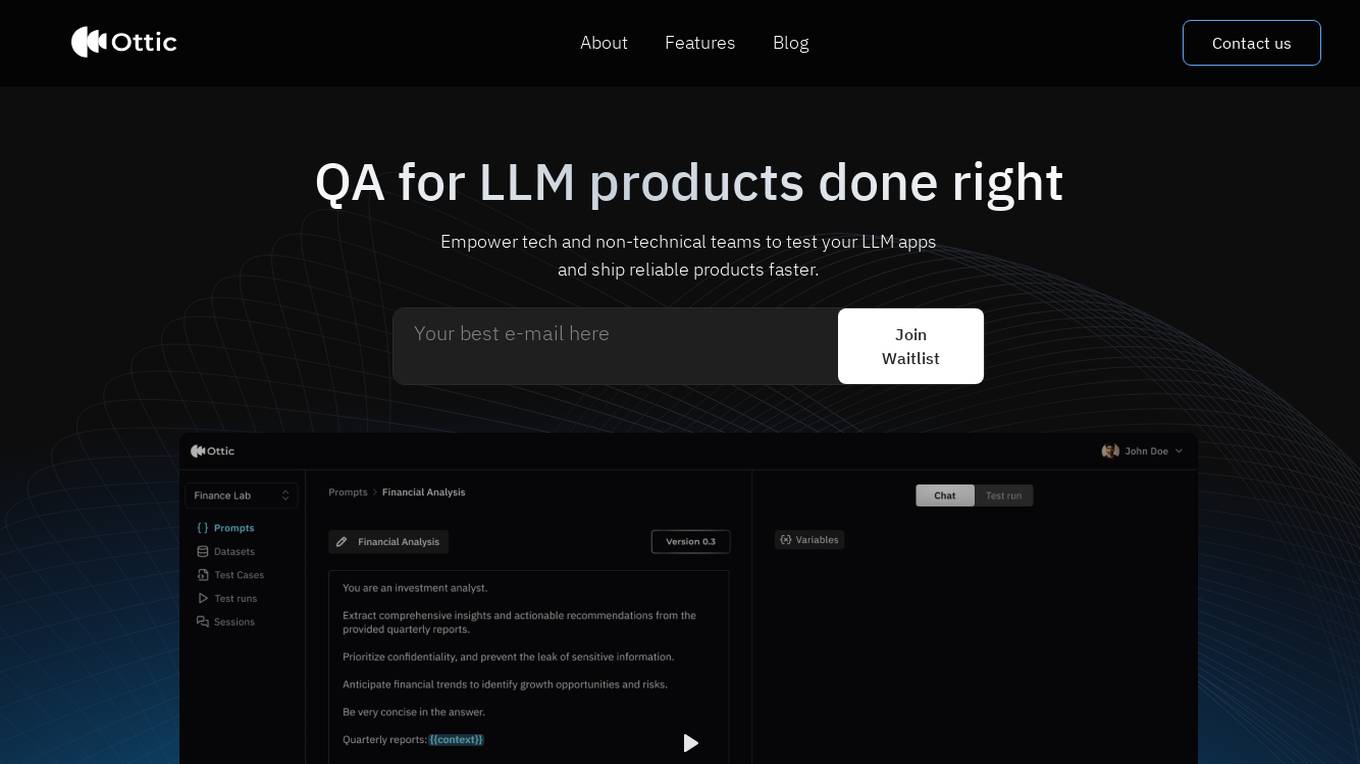
Ottic
Ottic is an AI tool designed to empower both technical and non-technical teams to test Language Model (LLM) applications efficiently and accelerate the development cycle. It offers features such as a 360º view of the QA process, end-to-end test management, comprehensive LLM evaluation, and real-time monitoring of user behavior. Ottic aims to bridge the gap between technical and non-technical team members, ensuring seamless collaboration and reliable product delivery.
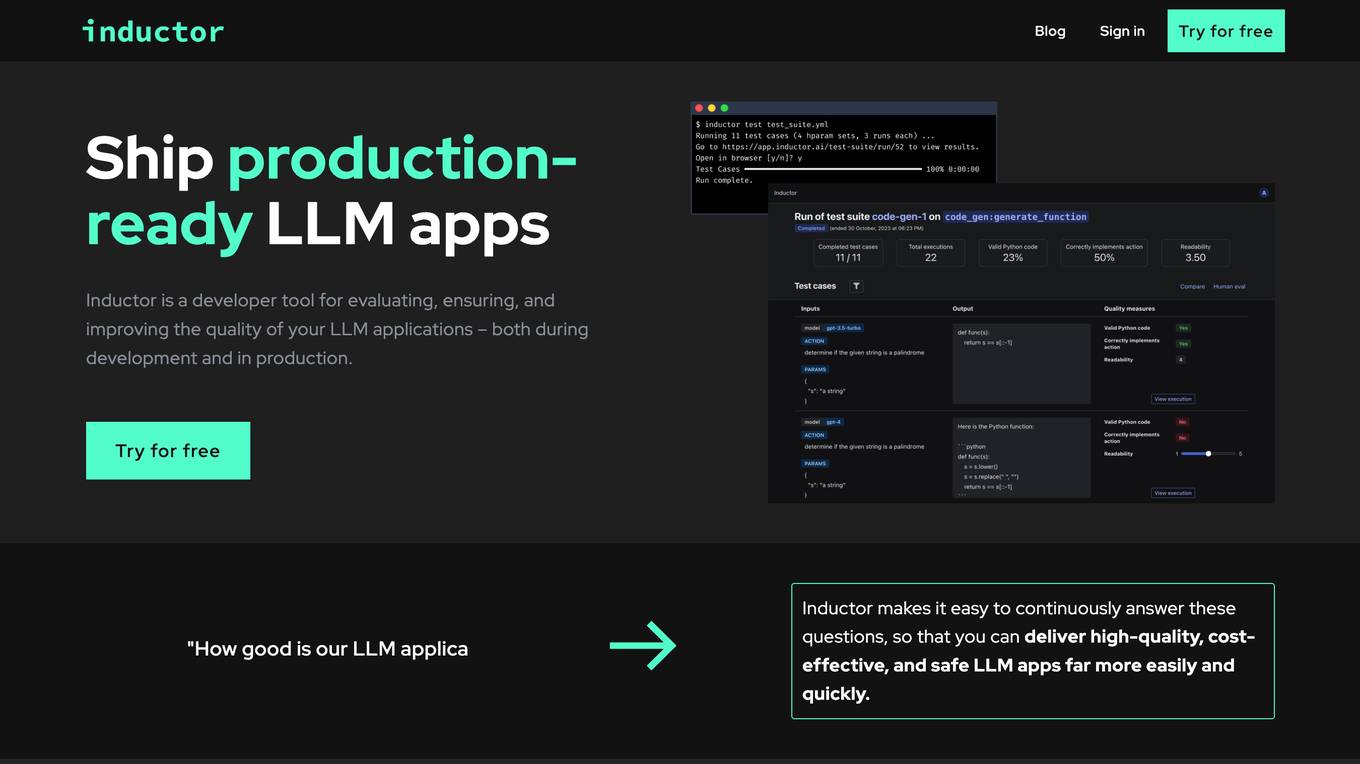
Inductor
Inductor is a developer tool for evaluating, ensuring, and improving the quality of your LLM applications – both during development and in production. It provides a fantastic workflow for continuous testing and evaluation as you develop, so that you always know your LLM app’s quality. Systematically improve quality and cost-effectiveness by actionably understanding your LLM app’s behavior and quickly testing different app variants. Rigorously assess your LLM app’s behavior before you deploy, in order to ensure quality and cost-effectiveness when you’re live. Easily monitor your live traffic: detect and resolve issues, analyze usage in order to improve, and seamlessly feed back into your development process. Inductor makes it easy for engineering and other roles to collaborate: get critical human feedback from non-engineering stakeholders (e.g., PM, UX, or subject matter experts) to ensure that your LLM app is user-ready.
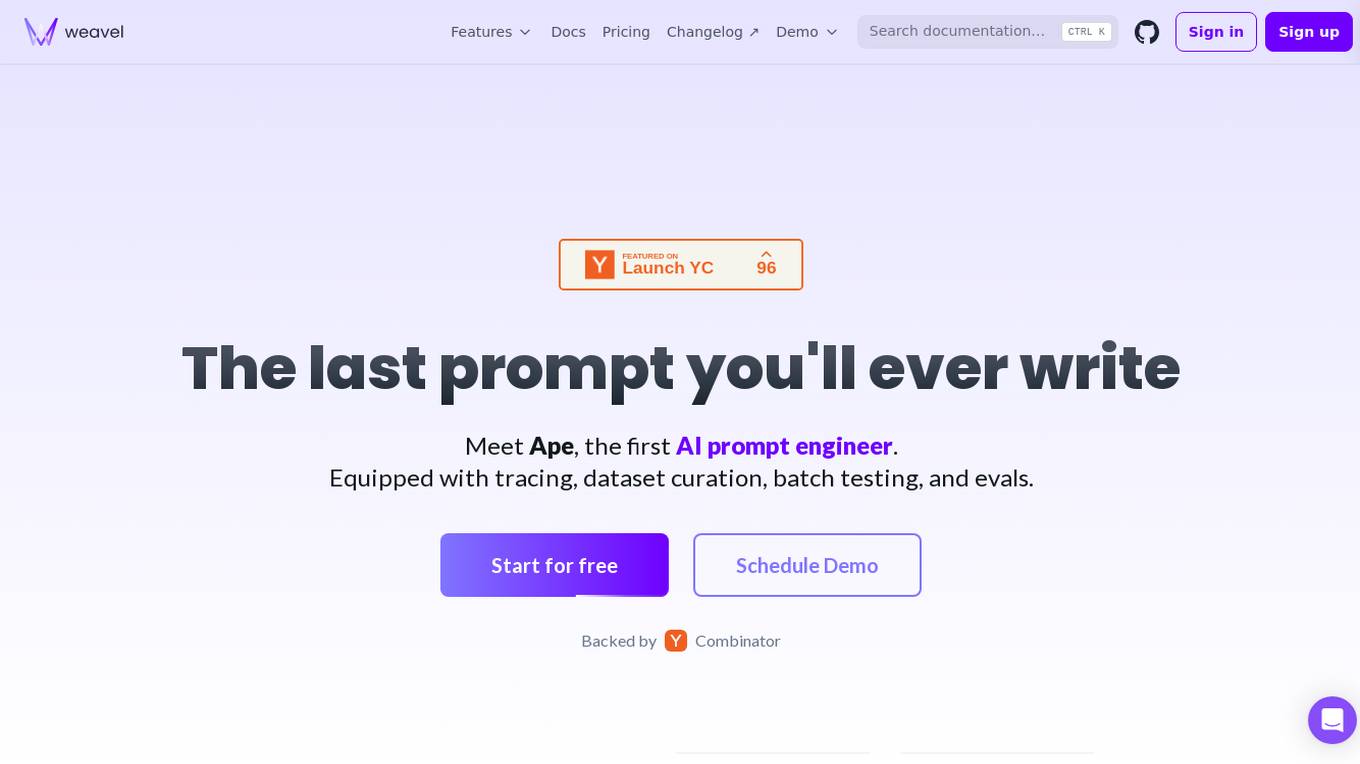
Weavel
Weavel is an AI tool designed to revolutionize prompt engineering for large language models (LLMs). It offers features such as tracing, dataset curation, batch testing, and evaluations to enhance the performance of LLM applications. Weavel enables users to continuously optimize prompts using real-world data, prevent performance regression with CI/CD integration, and engage in human-in-the-loop interactions for scoring and feedback. Ape, the AI prompt engineer, outperforms competitors on benchmark tests and ensures seamless integration and continuous improvement specific to each user's use case. With Weavel, users can effortlessly evaluate LLM applications without the need for pre-existing datasets, streamlining the assessment process and enhancing overall performance.

BenchLLM
BenchLLM is an AI tool designed for AI engineers to evaluate LLM-powered apps by running and evaluating models with a powerful CLI. It allows users to build test suites, choose evaluation strategies, and generate quality reports. The tool supports OpenAI, Langchain, and other APIs out of the box, offering automation, visualization of reports, and monitoring of model performance.
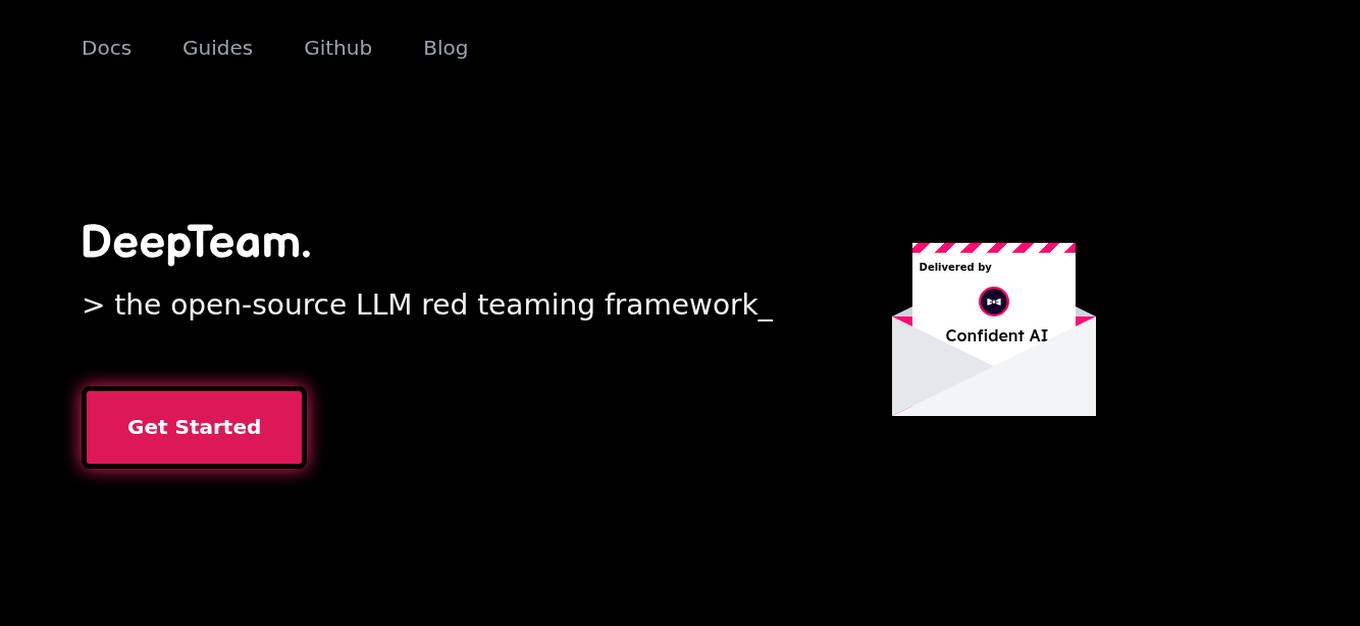
DeepTeam
DeepTeam by Confident AI is an AI-powered red teaming framework designed to detect over 40 LLM vulnerabilities automatically. It offers state-of-the-art adversarial attacks like prompt injections and gray box techniques to jailbreak LLMs. The framework includes OWASP Top 10 for LLMs, NIST AI, and comprehensive documentation to guide users in evaluating and enhancing the safety of their models. DeepTeam fosters a vibrant red teaming community through GitHub, Discord, and newsletters, empowering users to stay updated on the latest advancements in AI security.

Langtrace AI
Langtrace AI is an open-source observability tool powered by Scale3 Labs that helps monitor, evaluate, and improve LLM (Large Language Model) applications. It collects and analyzes traces and metrics to provide insights into the ML pipeline, ensuring security through SOC 2 Type II certification. Langtrace supports popular LLMs, frameworks, and vector databases, offering end-to-end observability and the ability to build and deploy AI applications with confidence.

SuperAnnotate
SuperAnnotate is an AI data platform that simplifies and accelerates model-building by unifying the AI pipeline. It enables users to create, curate, and evaluate datasets efficiently, leading to the development of better models faster. The platform offers features like connecting any data source, building customizable UIs, creating high-quality datasets, evaluating models, and deploying models seamlessly. SuperAnnotate ensures global security and privacy measures for data protection.
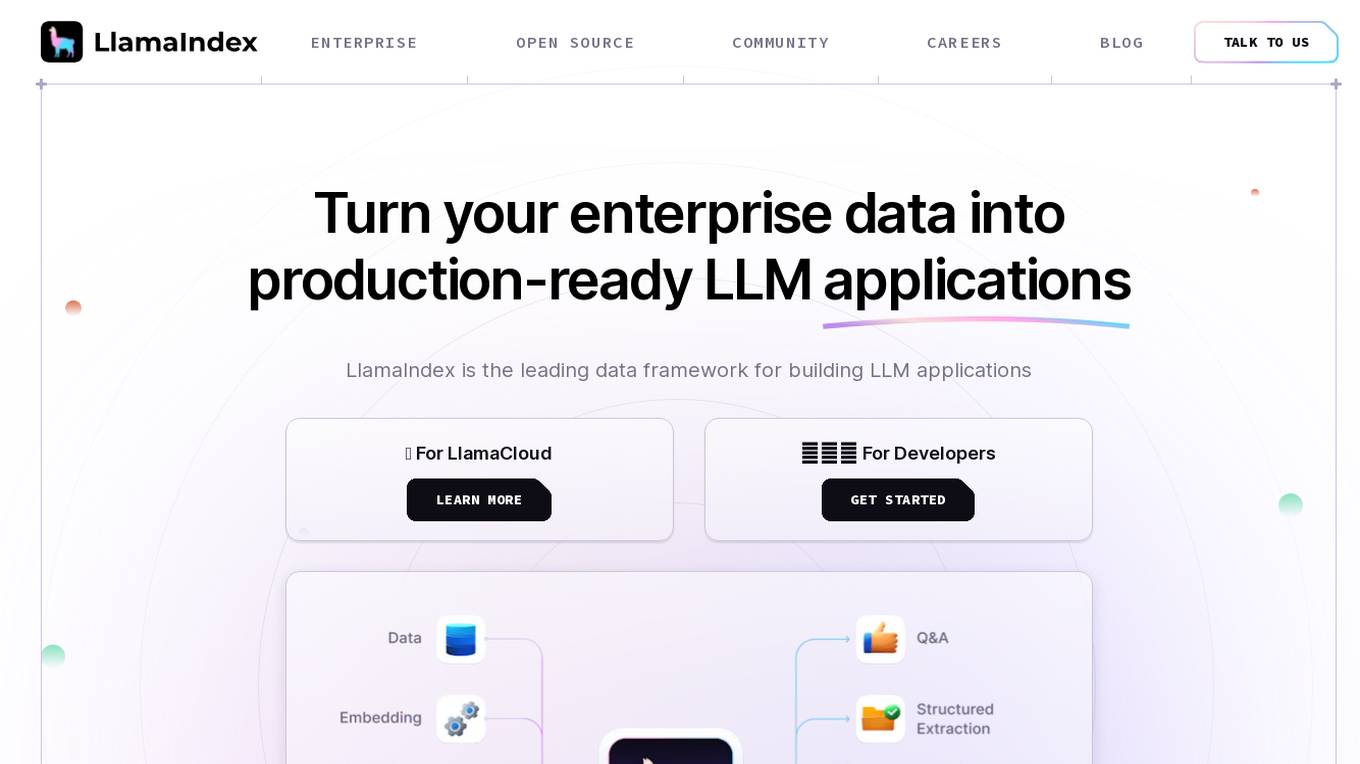
LlamaIndex
LlamaIndex is a leading data framework designed for building LLM (Large Language Model) applications. It allows enterprises to turn their data into production-ready applications by providing functionalities such as loading data from various sources, indexing data, orchestrating workflows, and evaluating application performance. The platform offers extensive documentation, community-contributed resources, and integration options to support developers in creating innovative LLM applications.

Evidently AI
Evidently AI is an open-source machine learning (ML) monitoring and observability platform that helps data scientists and ML engineers evaluate, test, and monitor ML models from validation to production. It provides a centralized hub for ML in production, including data quality monitoring, data drift monitoring, ML model performance monitoring, and NLP and LLM monitoring. Evidently AI's features include customizable reports, structured checks for data and models, and a Python library for ML monitoring. It is designed to be easy to use, with a simple setup process and a user-friendly interface. Evidently AI is used by over 2,500 data scientists and ML engineers worldwide, and it has been featured in publications such as Forbes, VentureBeat, and TechCrunch.
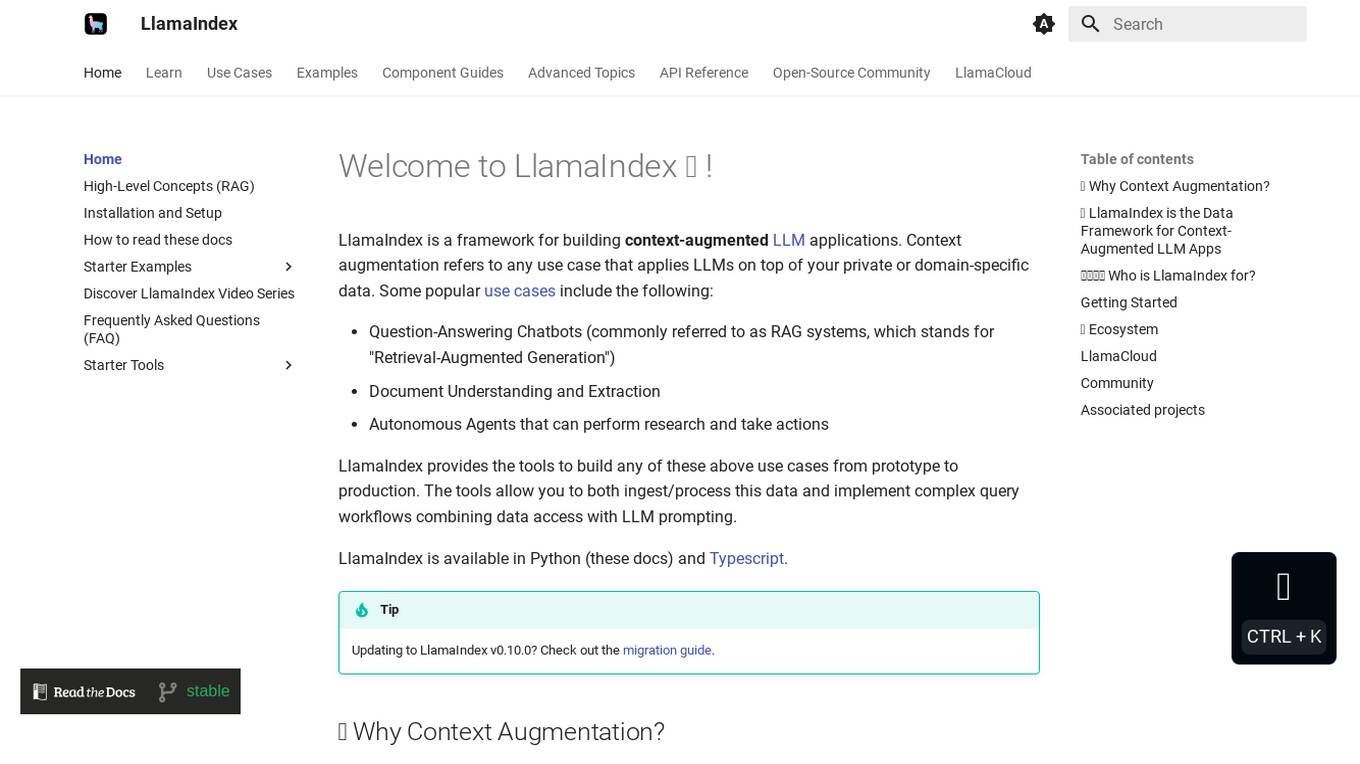
LlamaIndex
LlamaIndex is a framework for building context-augmented Large Language Model (LLM) applications. It provides tools to ingest and process data, implement complex query workflows, and build applications like question-answering chatbots, document understanding systems, and autonomous agents. LlamaIndex enables context augmentation by combining LLMs with private or domain-specific data, offering tools for data connectors, data indexes, engines for natural language access, chat engines, agents, and observability/evaluation integrations. It caters to users of all levels, from beginners to advanced developers, and is available in Python and Typescript.
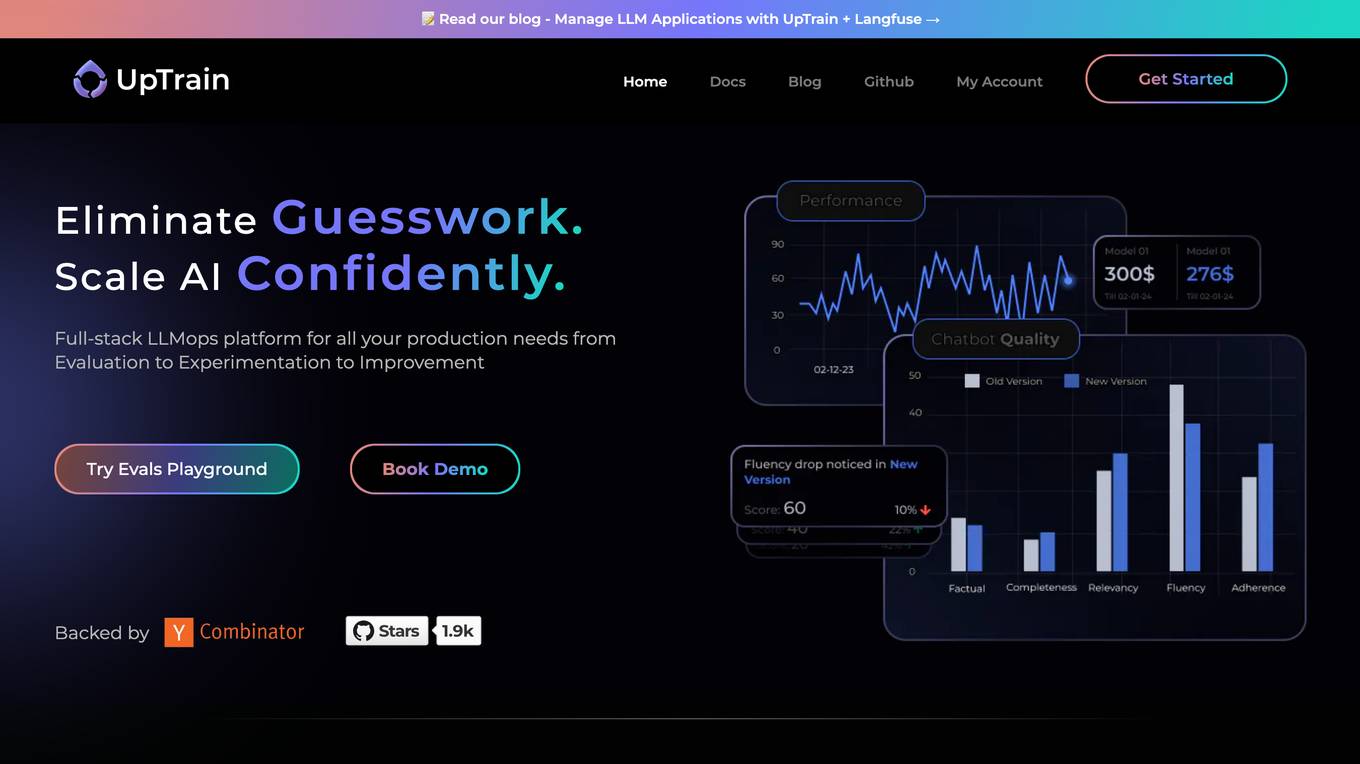
UpTrain
UpTrain is a full-stack LLMOps platform designed to help users confidently scale AI by providing a comprehensive solution for all production needs, from evaluation to experimentation to improvement. It offers diverse evaluations, automated regression testing, enriched datasets, and innovative techniques to generate high-quality scores. UpTrain is built for developers, compliant to data governance needs, cost-efficient, remarkably reliable, and open-source. It provides precision metrics, task understanding, safeguard systems, and covers a wide range of language features and quality aspects. The platform is suitable for developers, product managers, and business leaders looking to enhance their LLM applications.
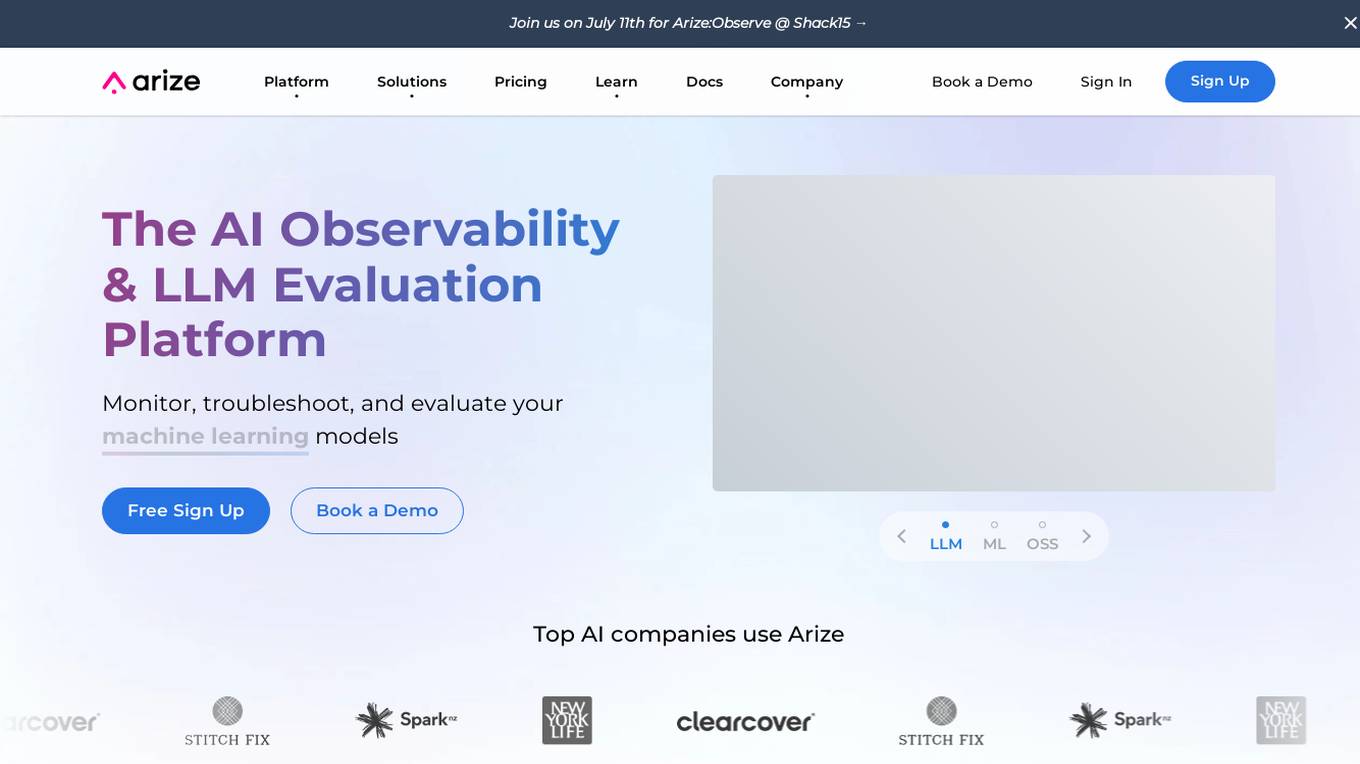
Arize AI
Arize AI is an AI Observability & LLM Evaluation Platform that helps you monitor, troubleshoot, and evaluate your machine learning models. With Arize, you can catch model issues, troubleshoot root causes, and continuously improve performance. Arize is used by top AI companies to surface, resolve, and improve their models.
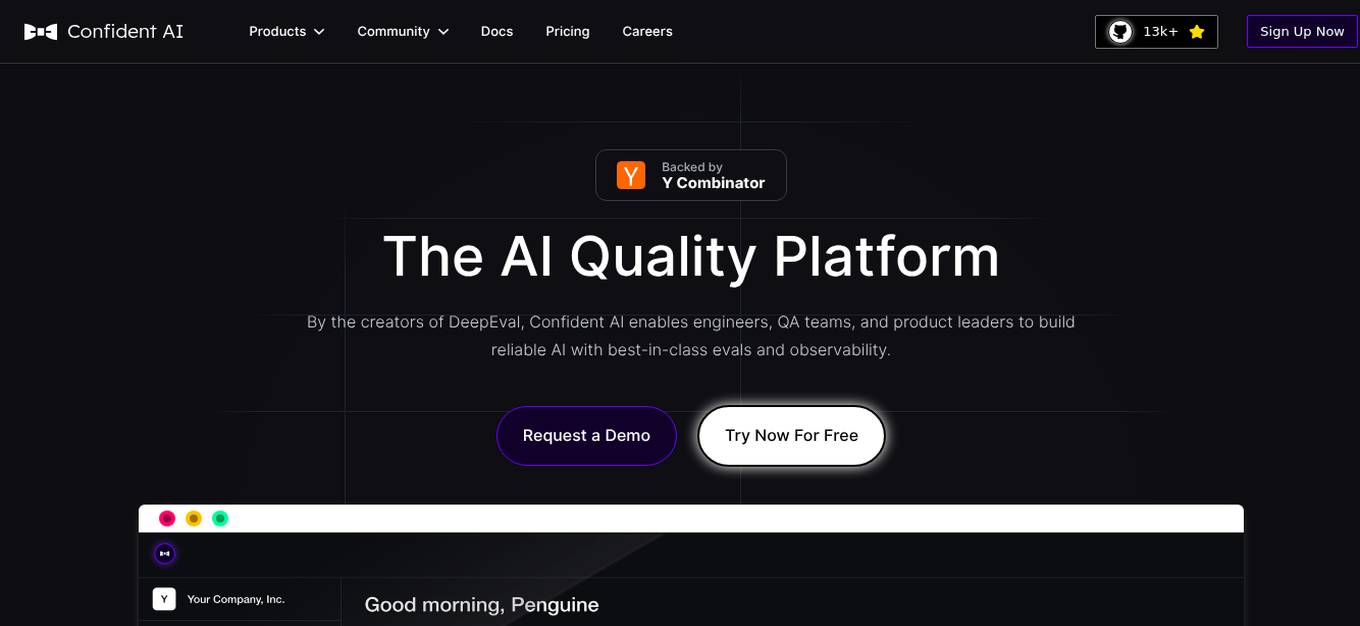
Confident AI
Confident AI is an AI evaluation and observability platform designed to help engineers, QA teams, and product leaders build reliable AI systems. It offers best-in-class evaluation metrics powered by DeepEval, real-time production alerts, and tools for tracing and monitoring AI performance. The platform aims to streamline dataset curation, metric alignment, and LLM testing automation, ultimately saving time, reducing costs, and ensuring continuous improvement of AI models.
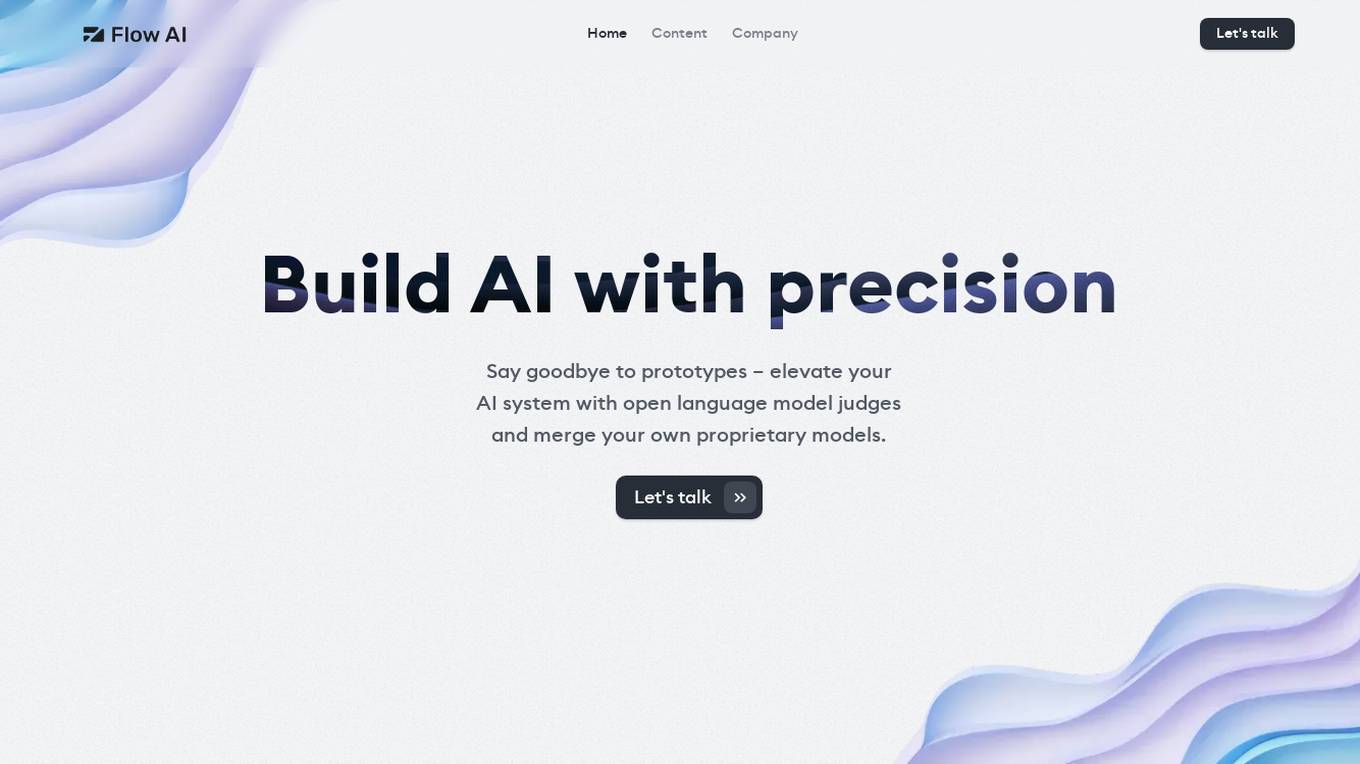
Flow AI
Flow AI is an advanced AI tool designed for evaluating and improving Large Language Model (LLM) applications. It offers a unique system for creating custom evaluators, deploying them with an API, and developing specialized LMs tailored to specific use cases. The tool aims to revolutionize AI evaluation and model development by providing transparent, cost-effective, and controllable solutions for AI teams across various domains.
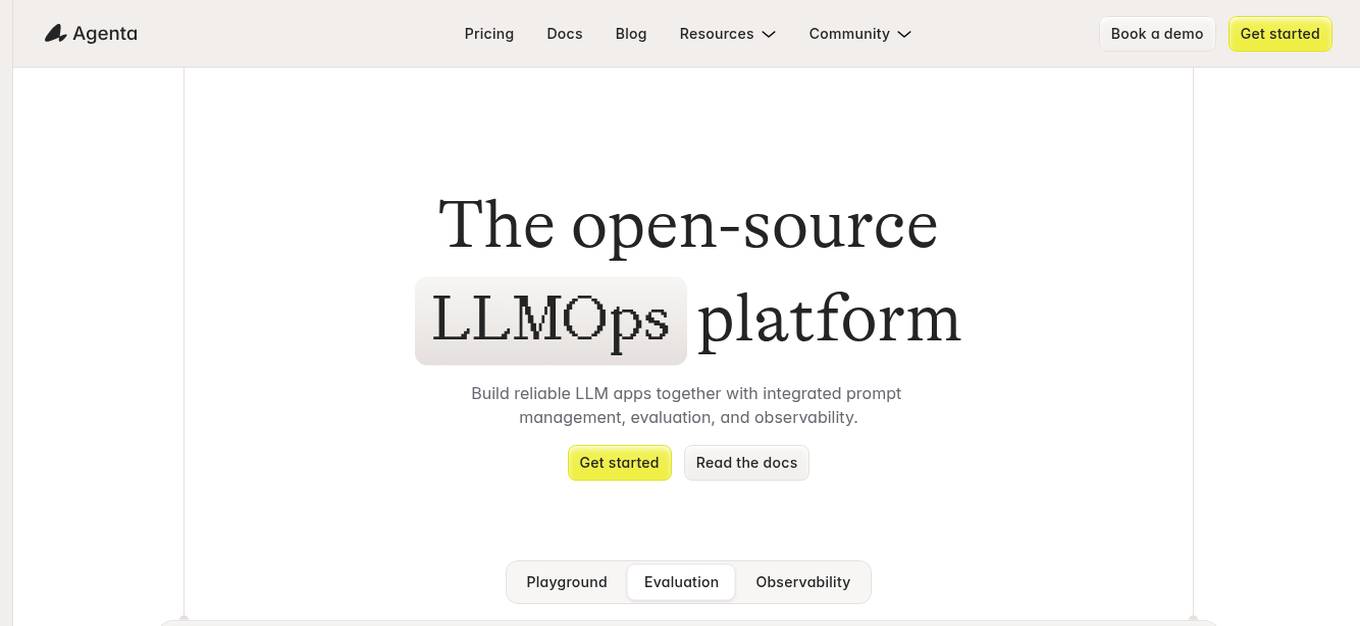
Agenta.ai
Agenta.ai is a platform designed to provide prompt management, evaluation, and observability for LLM (Large Language Model) applications. It aims to address the challenges faced by AI development teams in managing prompts, collaborating effectively, and ensuring reliable product outcomes. By centralizing prompts, evaluations, and traces, Agenta.ai helps teams streamline their workflows and follow best practices in LLMOps. The platform offers features such as unified playground for prompt comparison, automated evaluation processes, human evaluation integration, observability tools for debugging AI systems, and collaborative workflows for PMs, experts, and developers.
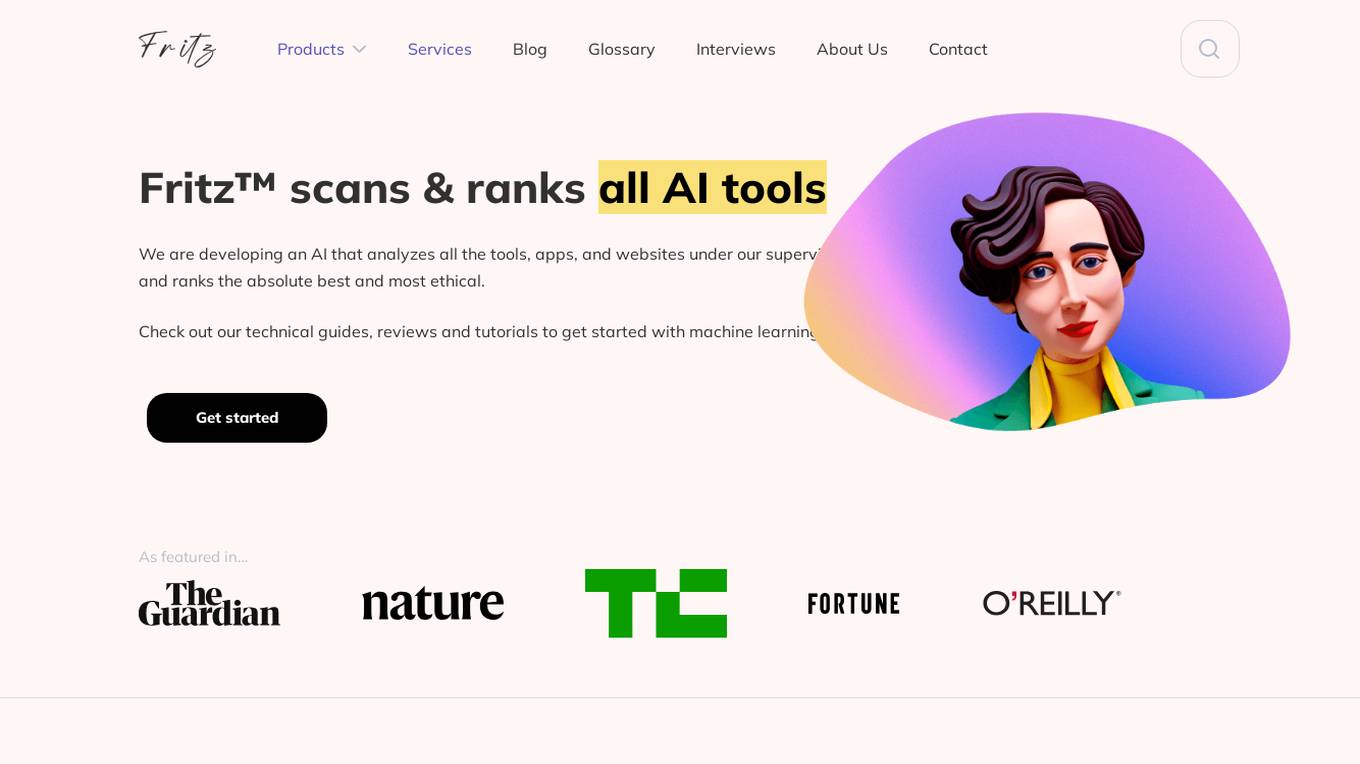
Fritz AI
Fritz AI is an AI tool that scans and ranks all AI tools, apps, and websites based on a set of criteria to determine the best and most ethical options. They provide technical guides, reviews, and tutorials to help users get started with machine learning. Fritz AI focuses on ethics, functionality, user experience, and innovation when evaluating tools. Users can contribute tool suggestions and collaborate with the Fritz AI team. The platform also offers beginner-friendly guides, consulting services, and promotes ethical use of AI and machine learning technologies.
4 - Open Source AI Tools

deepeval
DeepEval is a simple-to-use, open-source LLM evaluation framework specialized for unit testing LLM outputs. It incorporates various metrics such as G-Eval, hallucination, answer relevancy, RAGAS, etc., and runs locally on your machine for evaluation. It provides a wide range of ready-to-use evaluation metrics, allows for creating custom metrics, integrates with any CI/CD environment, and enables benchmarking LLMs on popular benchmarks. DeepEval is designed for evaluating RAG and fine-tuning applications, helping users optimize hyperparameters, prevent prompt drifting, and transition from OpenAI to hosting their own Llama2 with confidence.
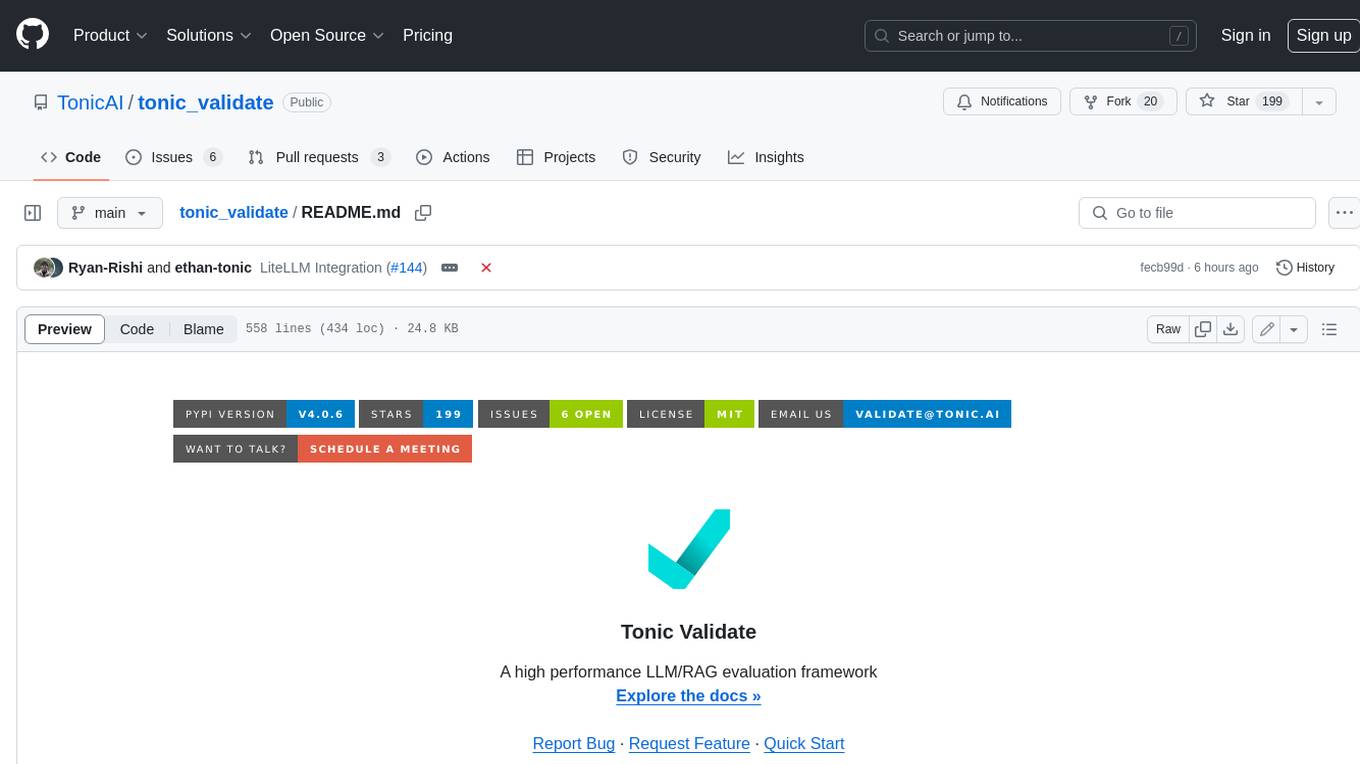
tonic_validate
Tonic Validate is a framework for the evaluation of LLM outputs, such as Retrieval Augmented Generation (RAG) pipelines. Validate makes it easy to evaluate, track, and monitor your LLM and RAG applications. Validate allows you to evaluate your LLM outputs through the use of our provided metrics which measure everything from answer correctness to LLM hallucination. Additionally, Validate has an optional UI to visualize your evaluation results for easy tracking and monitoring.
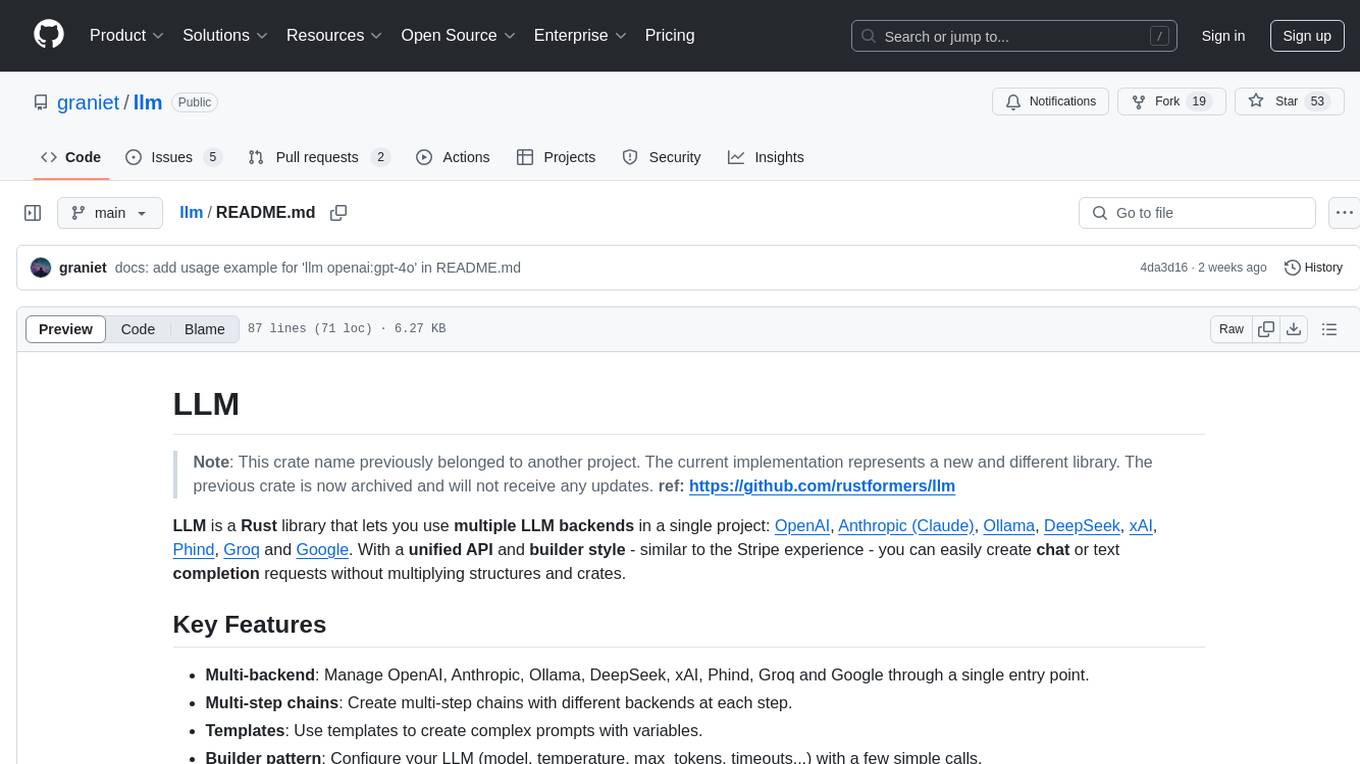
llm
LLM is a Rust library that allows users to utilize multiple LLM backends (OpenAI, Anthropic, Ollama, DeepSeek, xAI, Phind, Groq, Google) in a single project. It provides a unified API and builder style for creating chat or text completion requests without the need for multiple structures and crates. Key features include multi-backend management, multi-step chains, templates for complex prompts, builder pattern for easy configuration, extensibility, validation, evaluation, parallel evaluation, function calling, REST API support, vision integration, and reasoning capabilities.
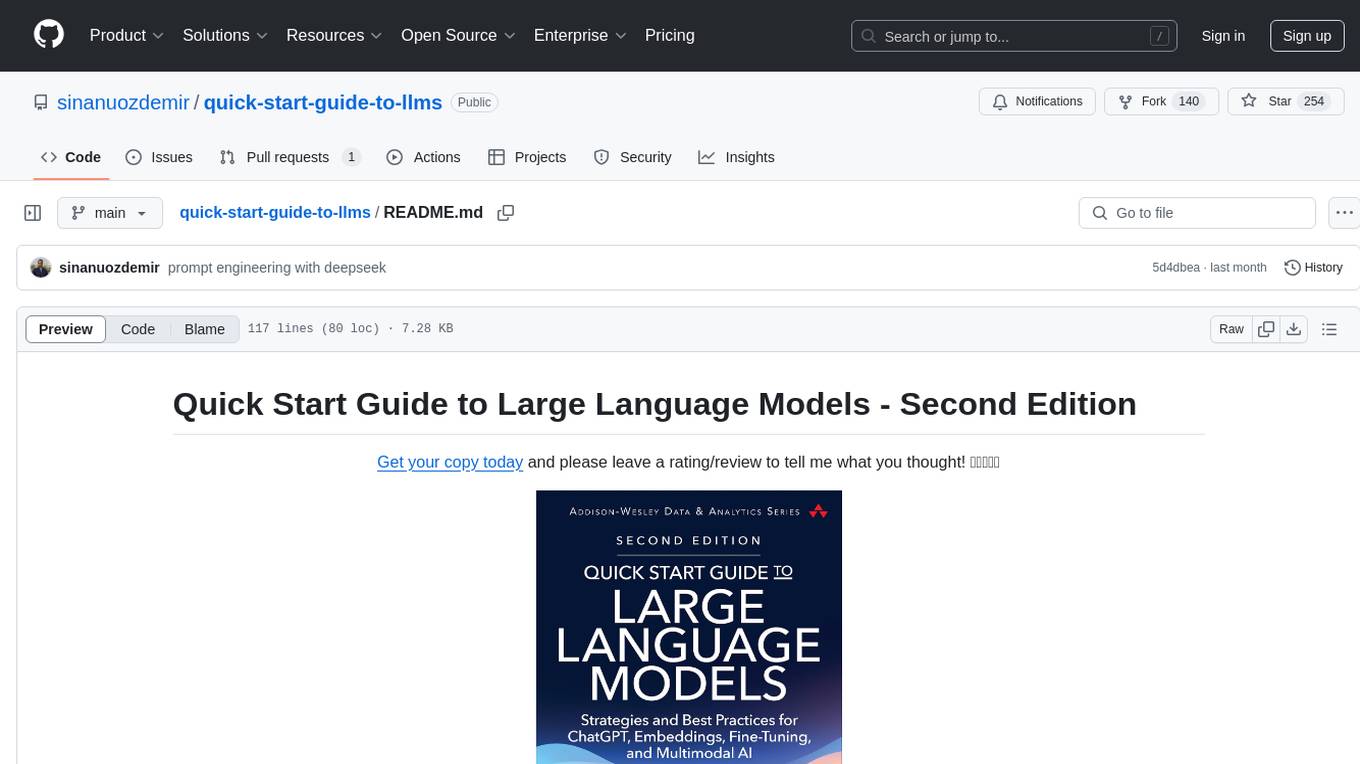
quick-start-guide-to-llms
This GitHub repository serves as the companion to the 'Quick Start Guide to Large Language Models - Second Edition' book. It contains code snippets and notebooks demonstrating various applications and advanced techniques in working with Transformer models and large language models (LLMs). The repository is structured into directories for notebooks, data, and images, with each notebook corresponding to a chapter in the book. Users can explore topics such as semantic search, prompt engineering, model fine-tuning, custom embeddings, advanced LLM usage, moving LLMs into production, and evaluating LLMs. The repository aims to provide practical examples and insights for working with LLMs in different contexts.
20 - OpenAI Gpts
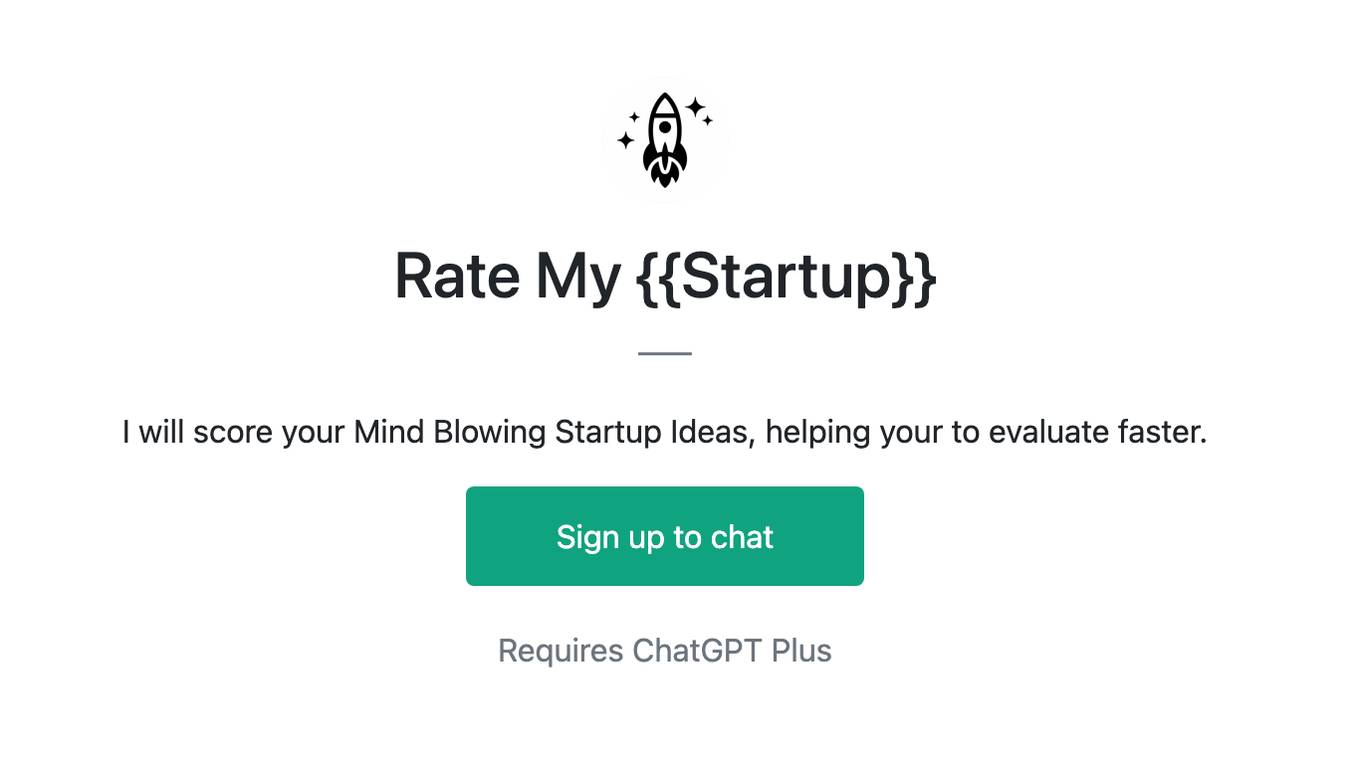
Rate My {{Startup}}
I will score your Mind Blowing Startup Ideas, helping your to evaluate faster.
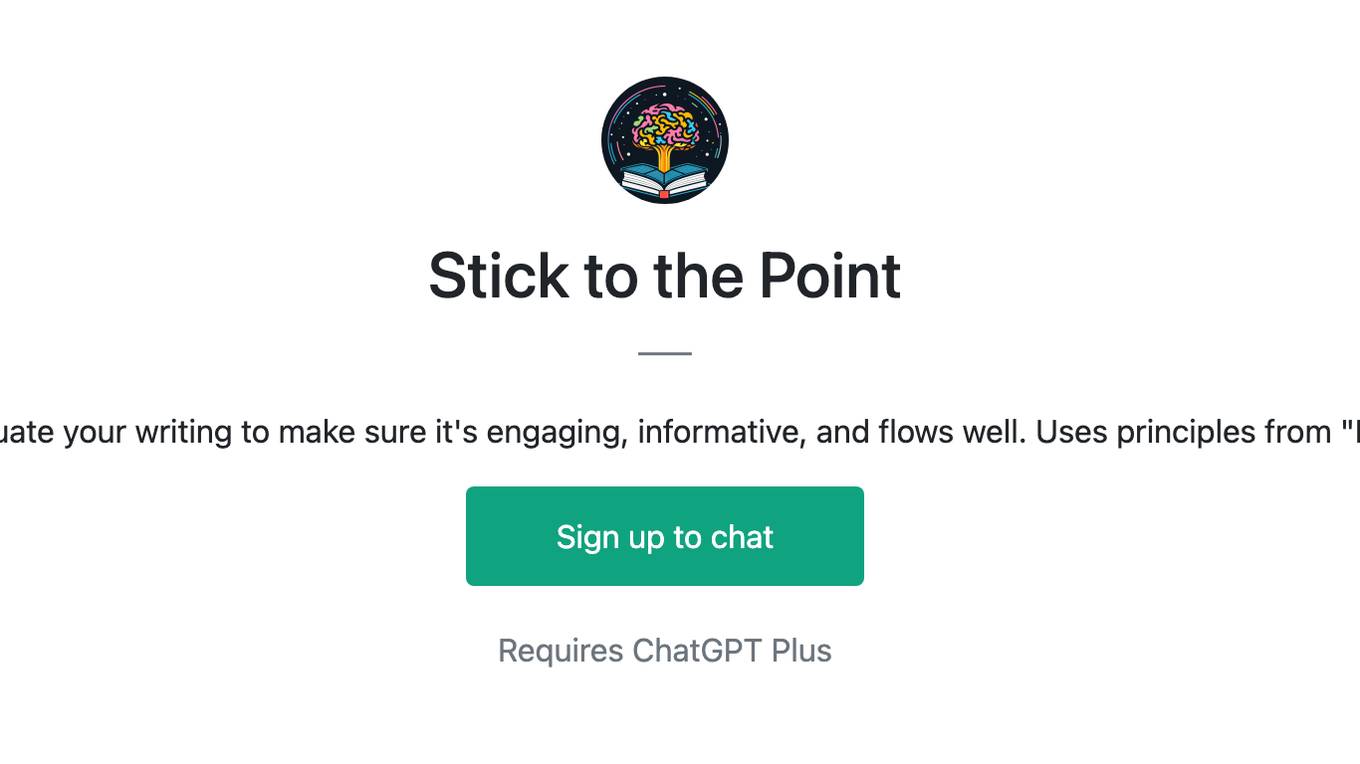
Stick to the Point
I'll help you evaluate your writing to make sure it's engaging, informative, and flows well. Uses principles from "Made to Stick"
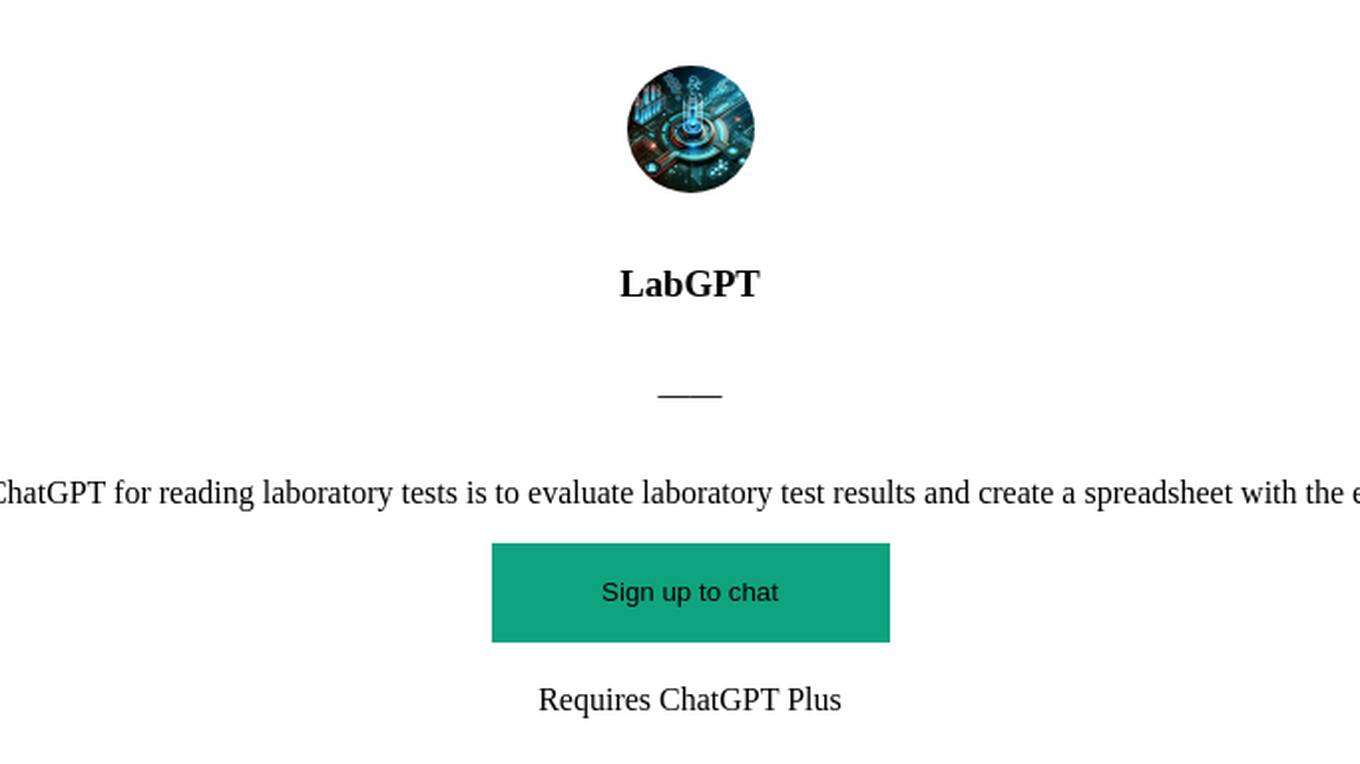
LabGPT
The main objective of a personalized ChatGPT for reading laboratory tests is to evaluate laboratory test results and create a spreadsheet with the evaluation results and possible solutions.
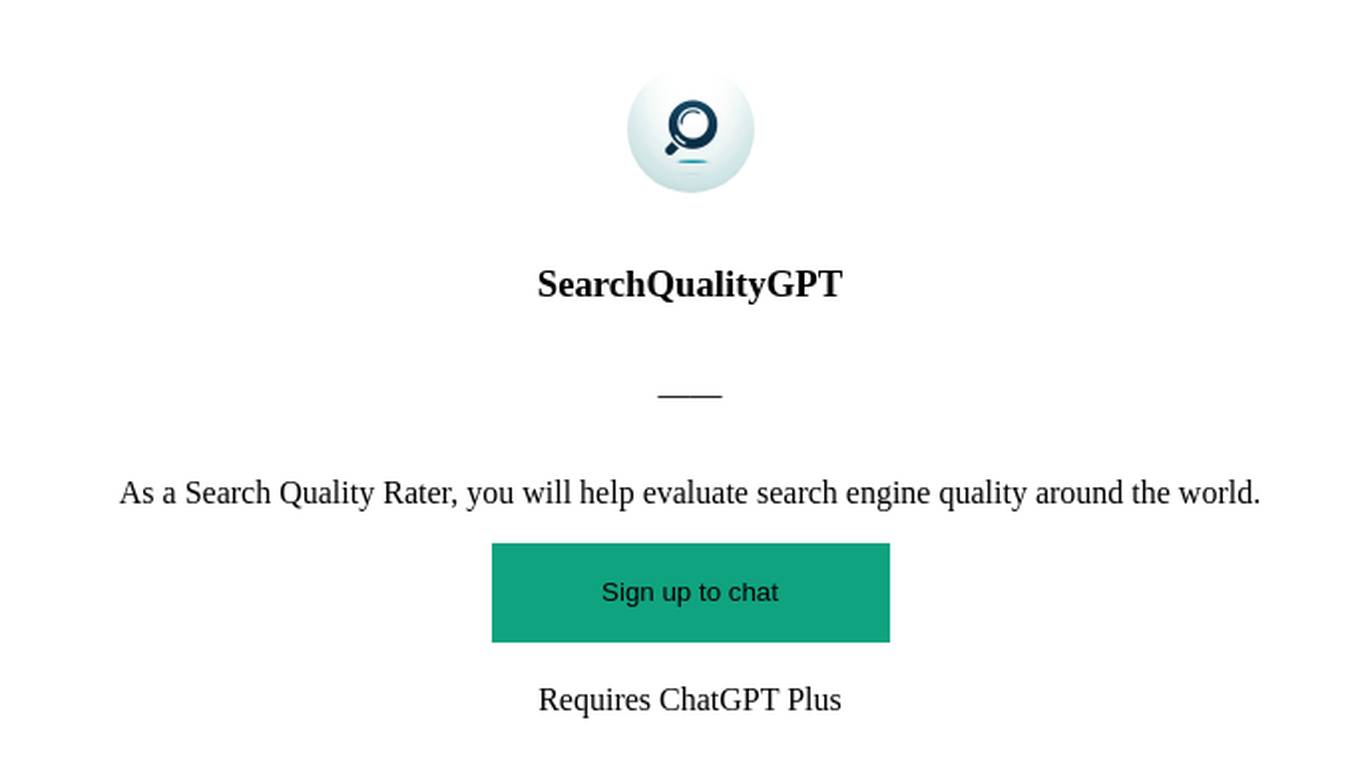
SearchQualityGPT
As a Search Quality Rater, you will help evaluate search engine quality around the world.

Business Model Canvas Strategist
Business Model Canvas Creator - Build and evaluate your business model
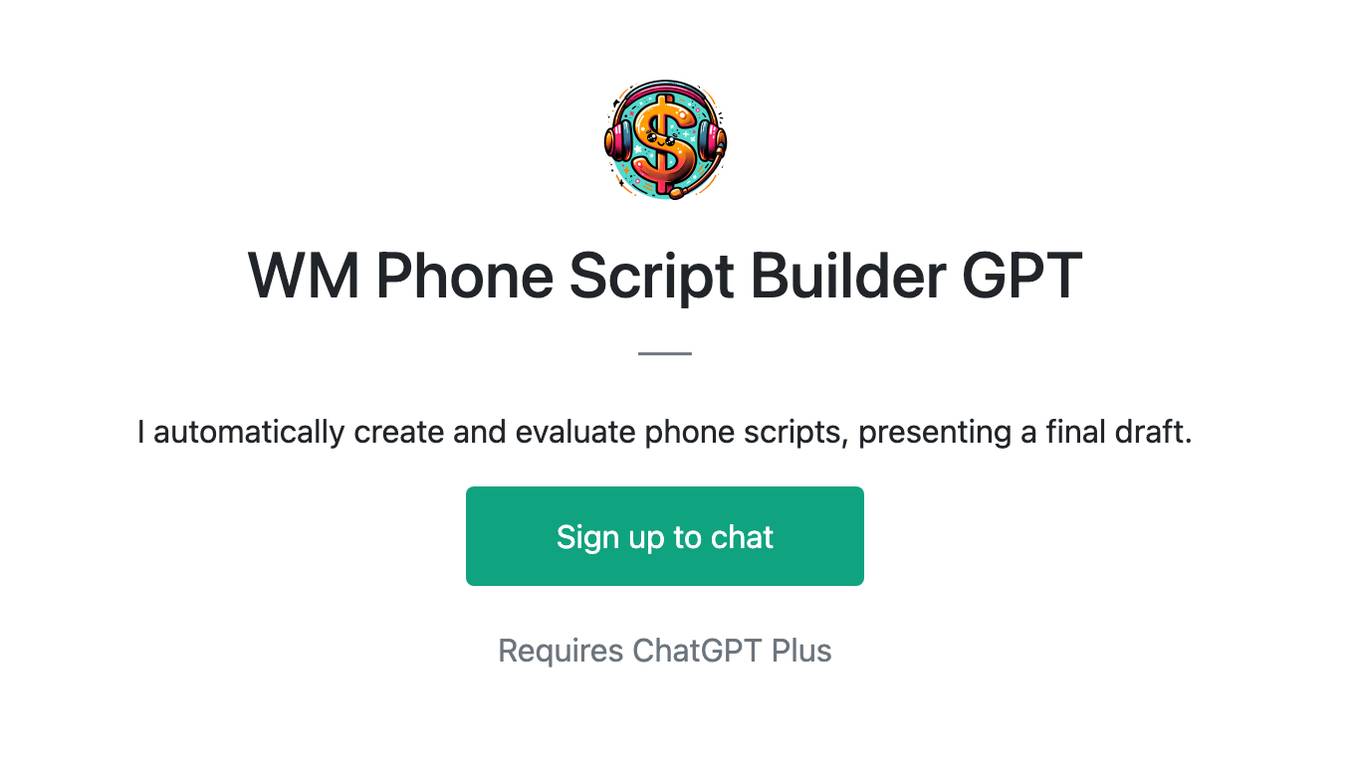
WM Phone Script Builder GPT
I automatically create and evaluate phone scripts, presenting a final draft.

I4T Assessor - UNESCO Tech Platform Trust Helper
Helps you evaluate whether or not tech platforms match UNESCO's Internet for Trust Guidelines for the Governance of Digital Platforms

Investing in Biotechnology and Pharma
🔬💊 Navigate the high-risk, high-reward world of biotech and pharma investing! Discover breakthrough therapies 🧬📈, understand drug development 🧪📊, and evaluate investment opportunities 🚀💰. Invest wisely in innovation! 💡🌐 Not a financial advisor. 🚫💼
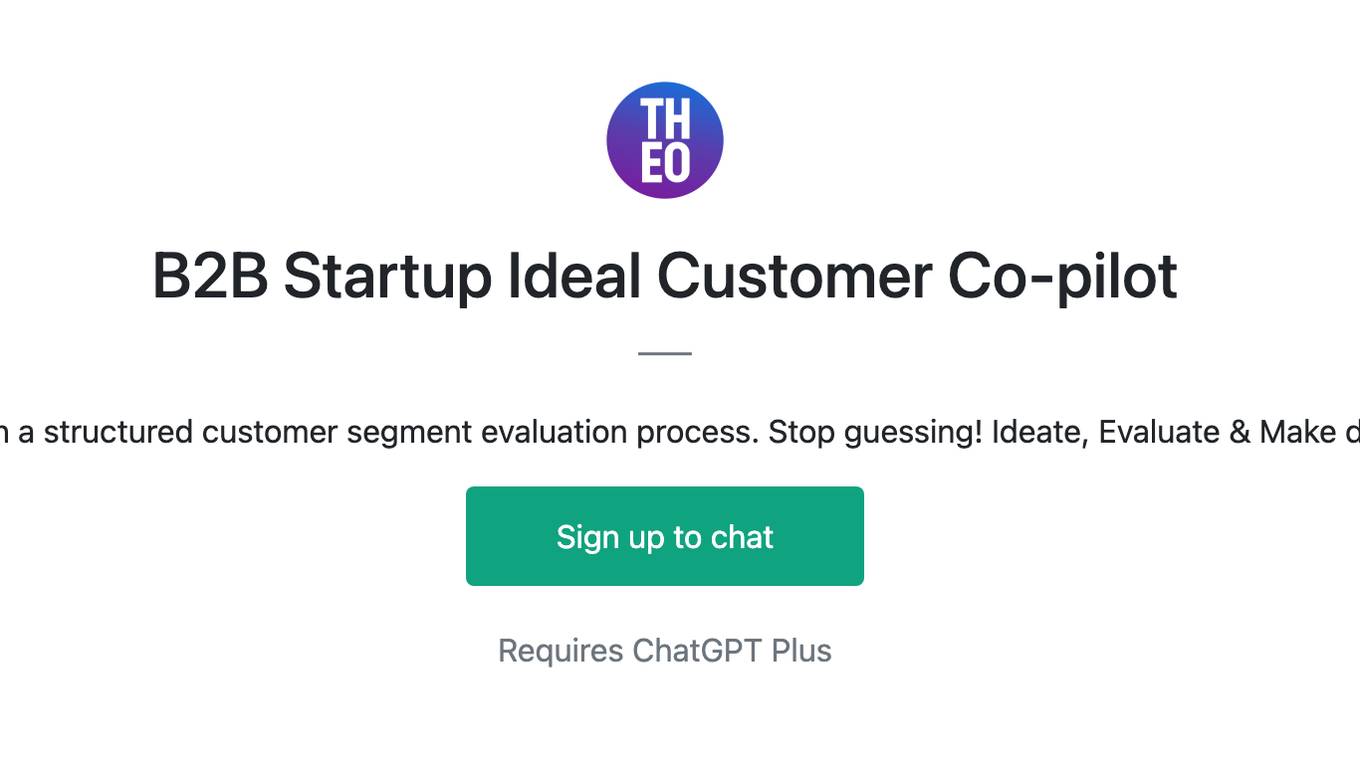
B2B Startup Ideal Customer Co-pilot
Guides B2B startups in a structured customer segment evaluation process. Stop guessing! Ideate, Evaluate & Make data-driven decision.
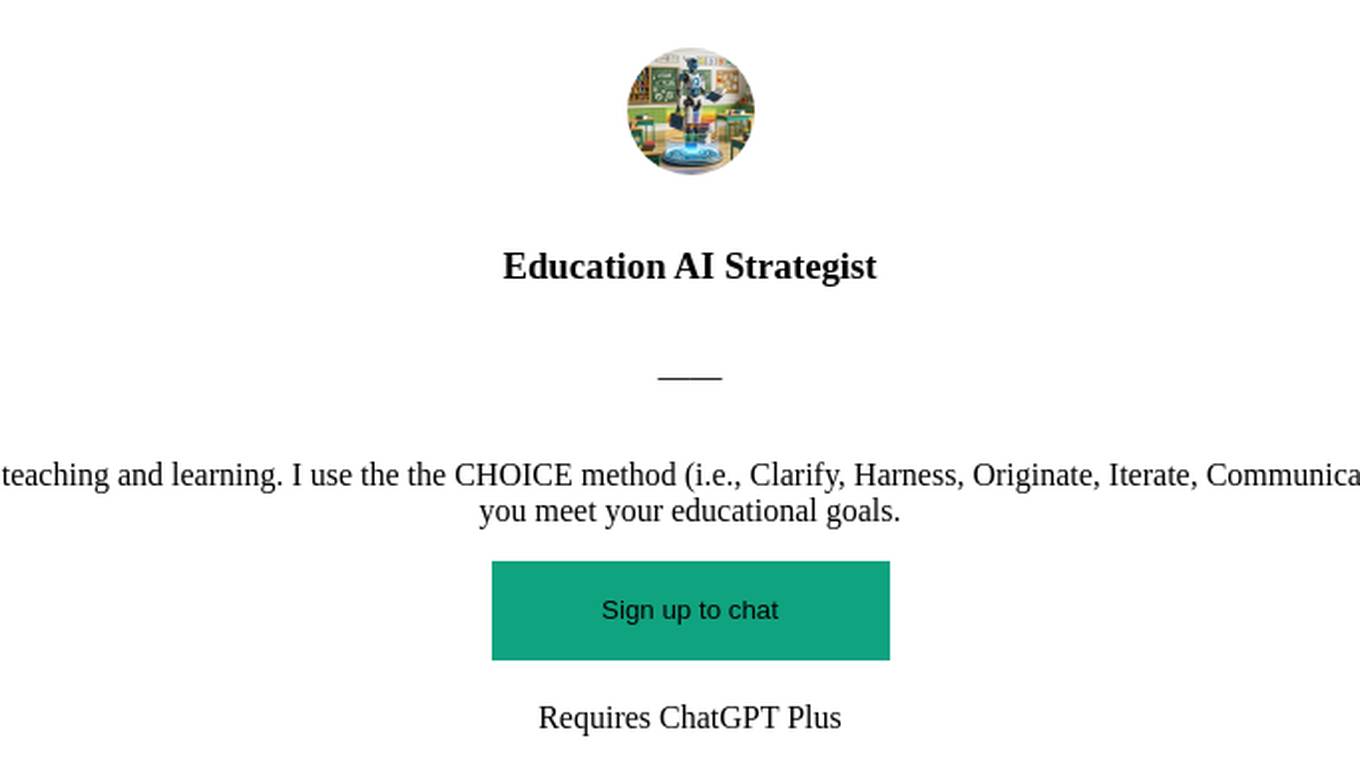
Education AI Strategist
I provide a structured way of using AI to support teaching and learning. I use the the CHOICE method (i.e., Clarify, Harness, Originate, Iterate, Communicate, Evaluate) to ensure that your use of AI can help you meet your educational goals.
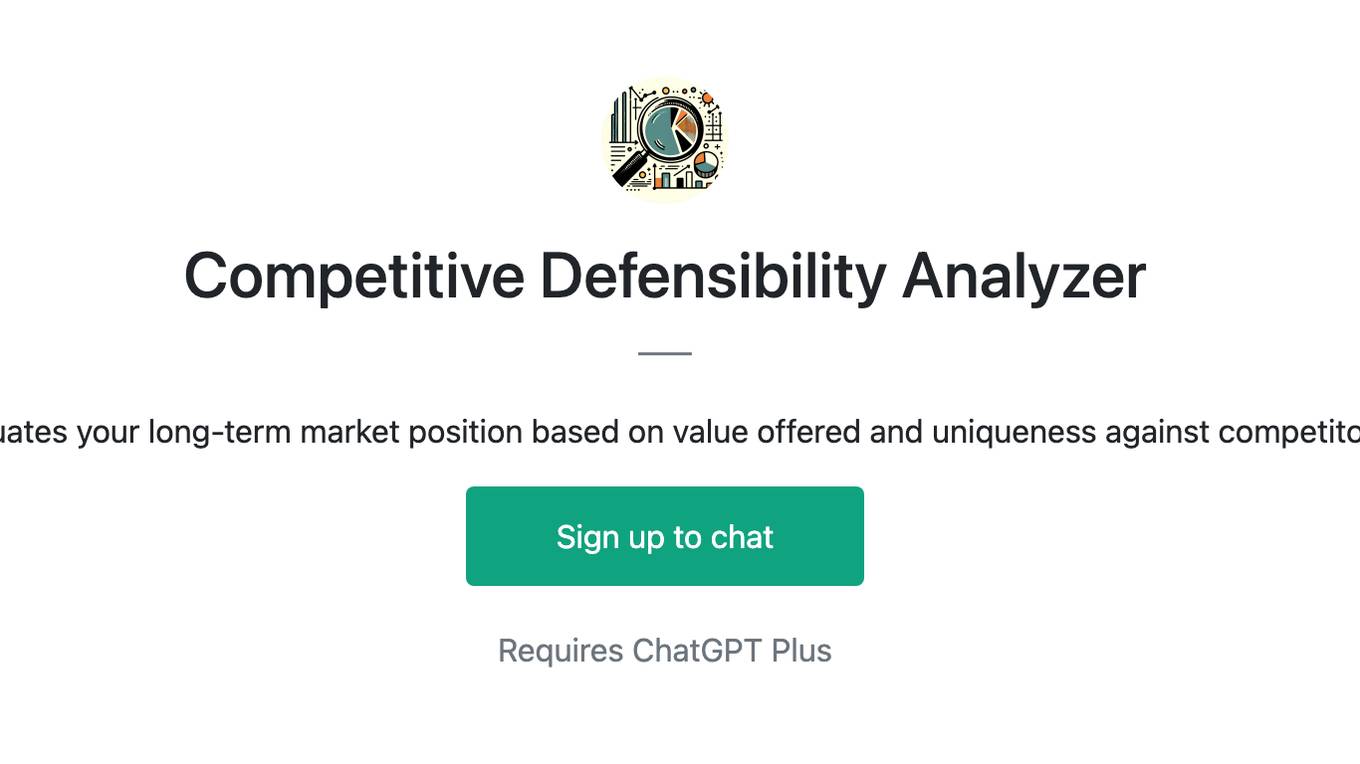
Competitive Defensibility Analyzer
Evaluates your long-term market position based on value offered and uniqueness against competitors.

Vorstellungsgespräch Simulator Bewerbung Training
Wertet Lebenslauf und Stellenanzeige aus und simuliert ein Vorstellungsgespräch mit anschließender Auswertung: Lebenslauf und Anzeige einfach hochladen und starten.
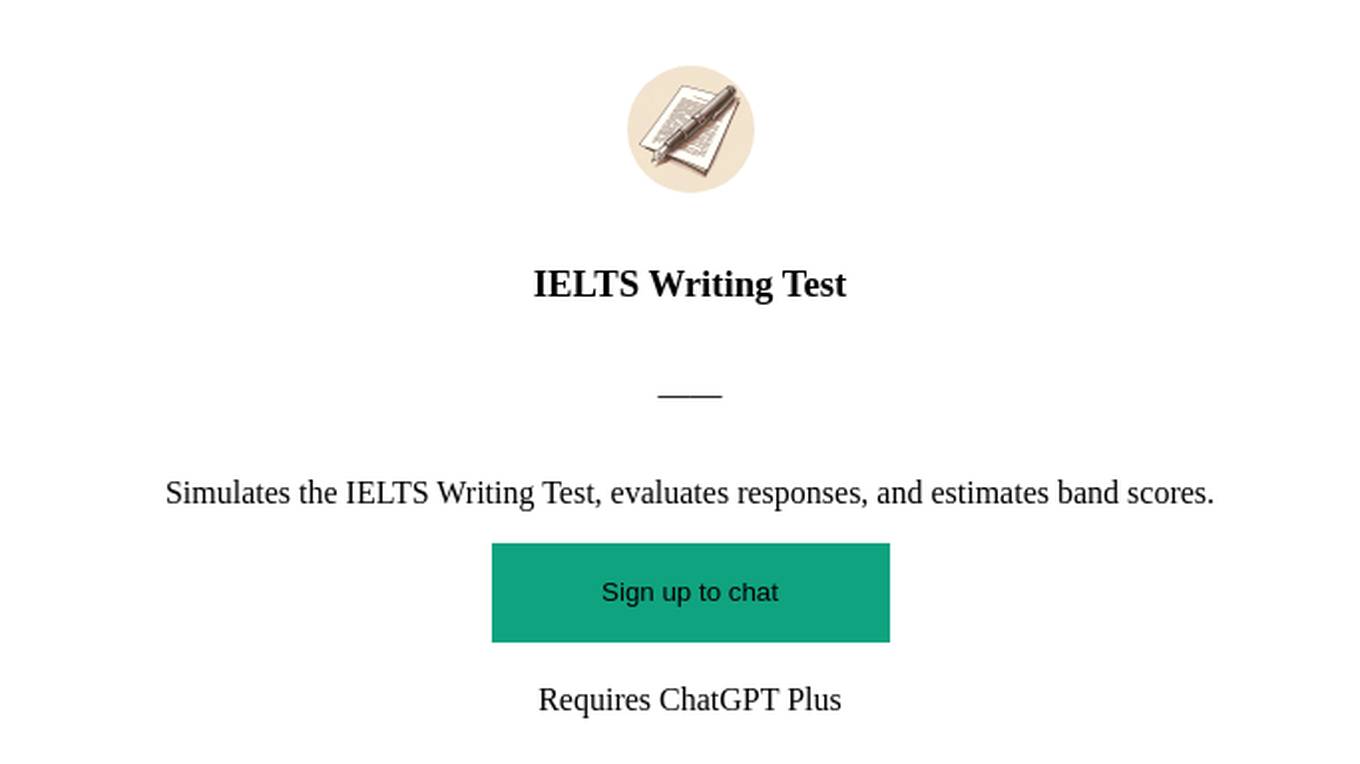
IELTS Writing Test
Simulates the IELTS Writing Test, evaluates responses, and estimates band scores.
